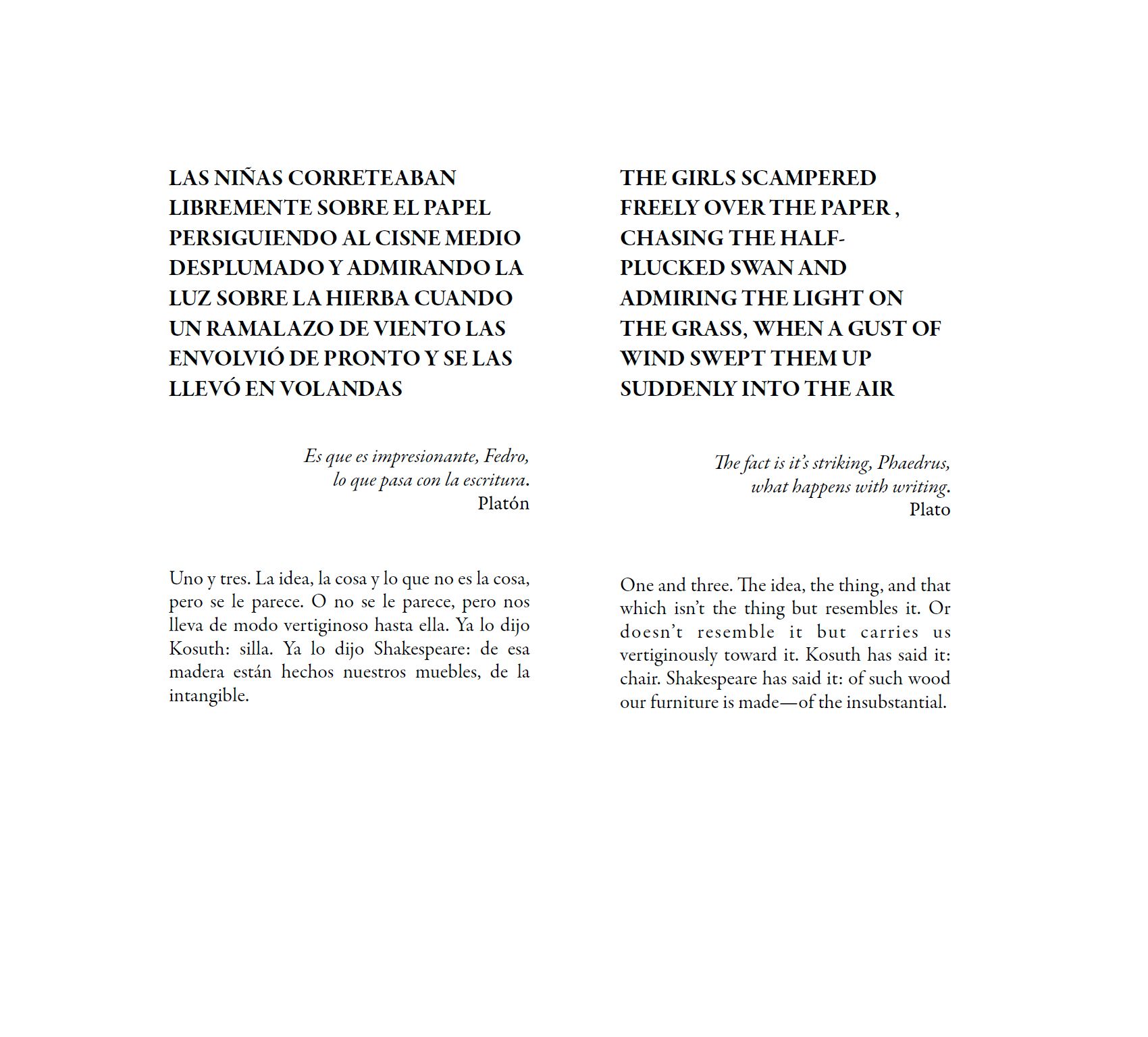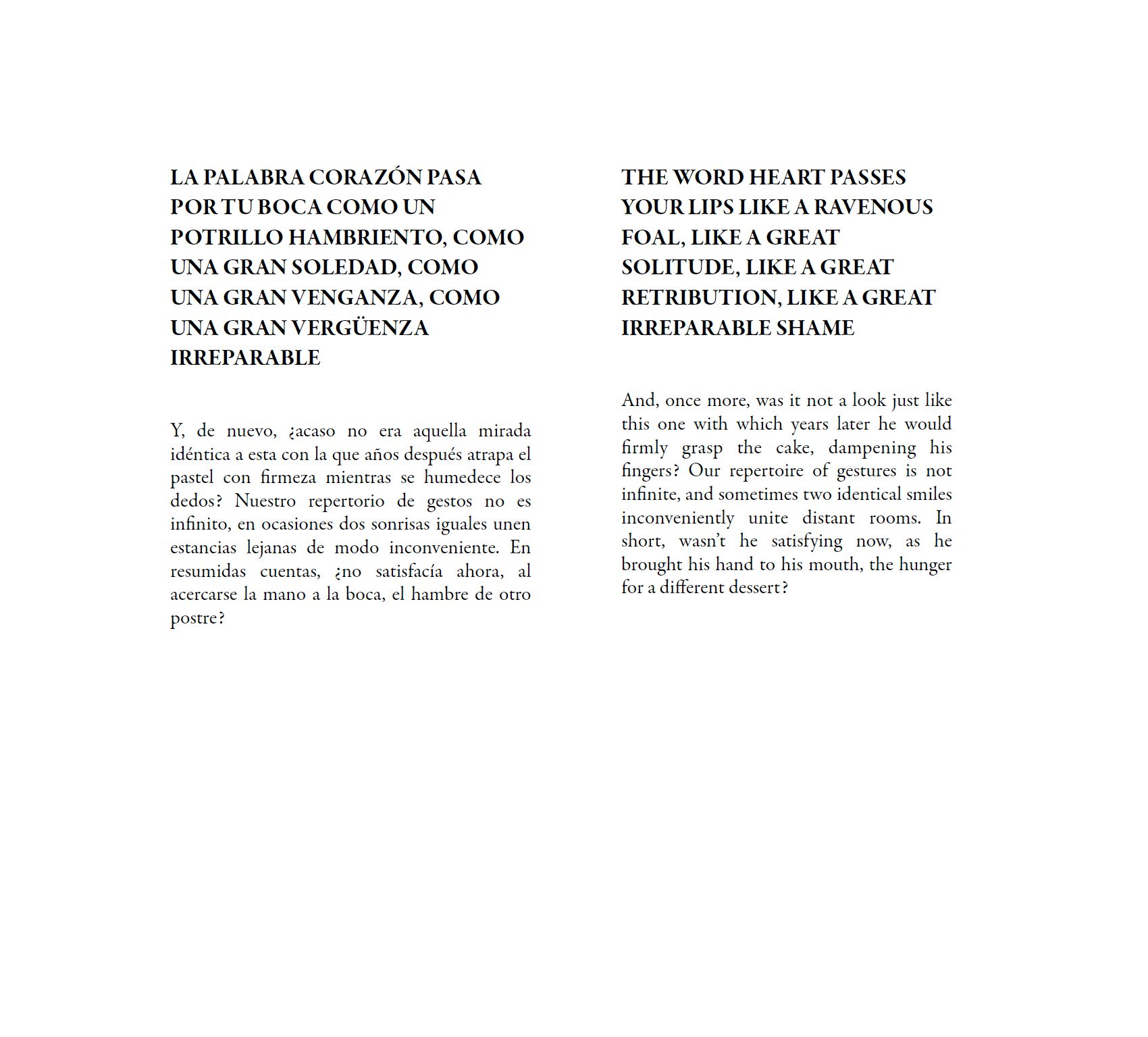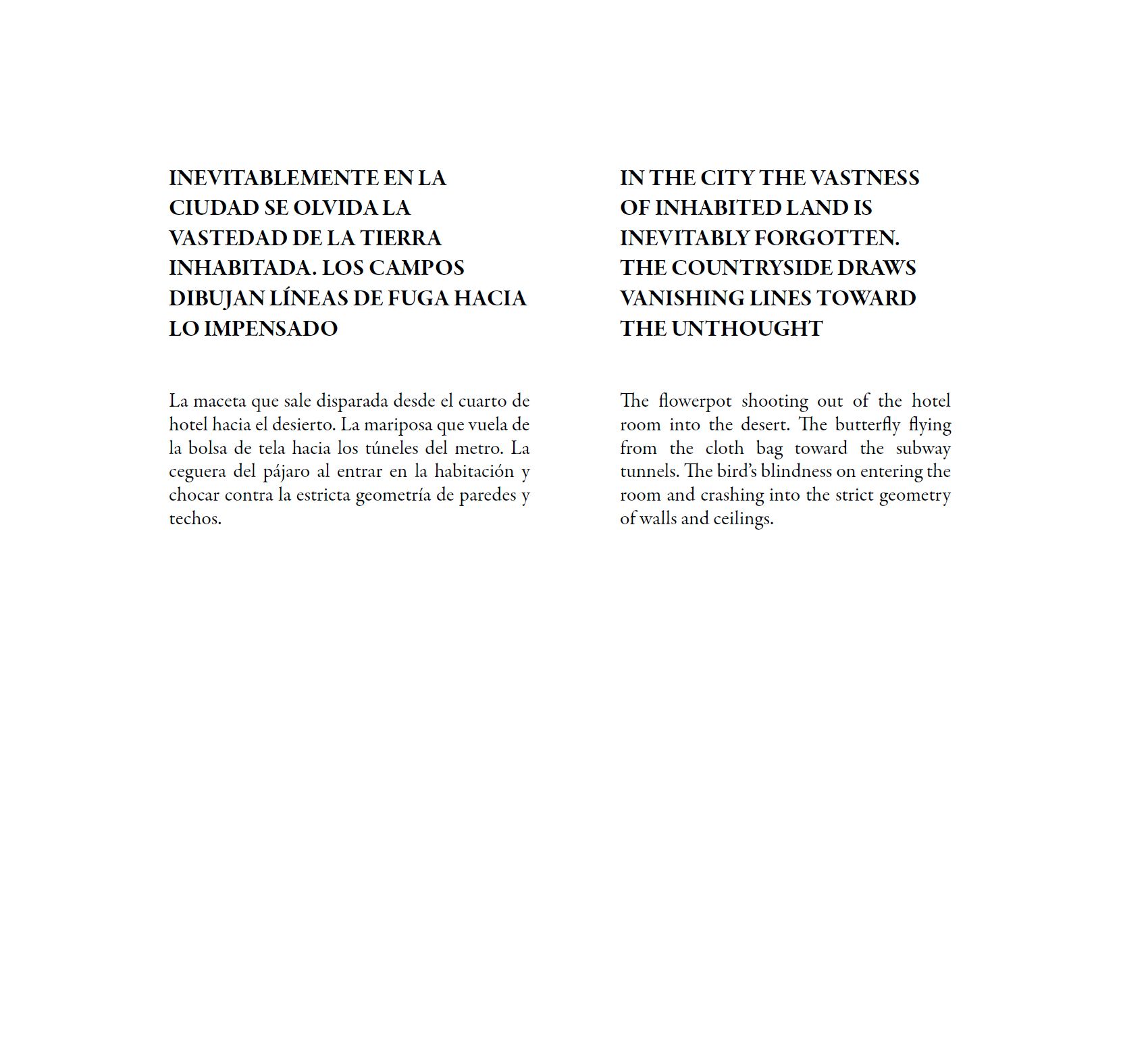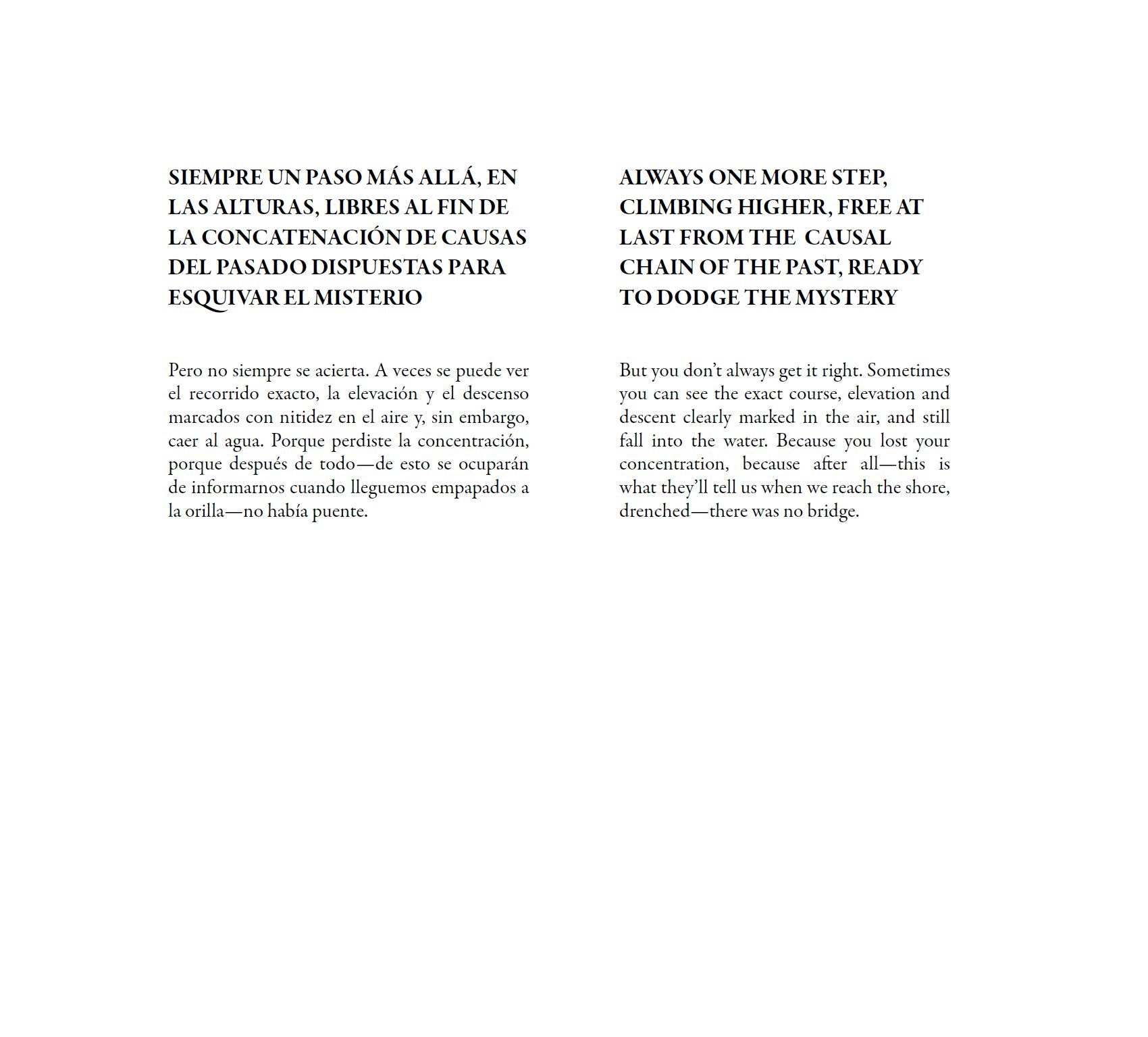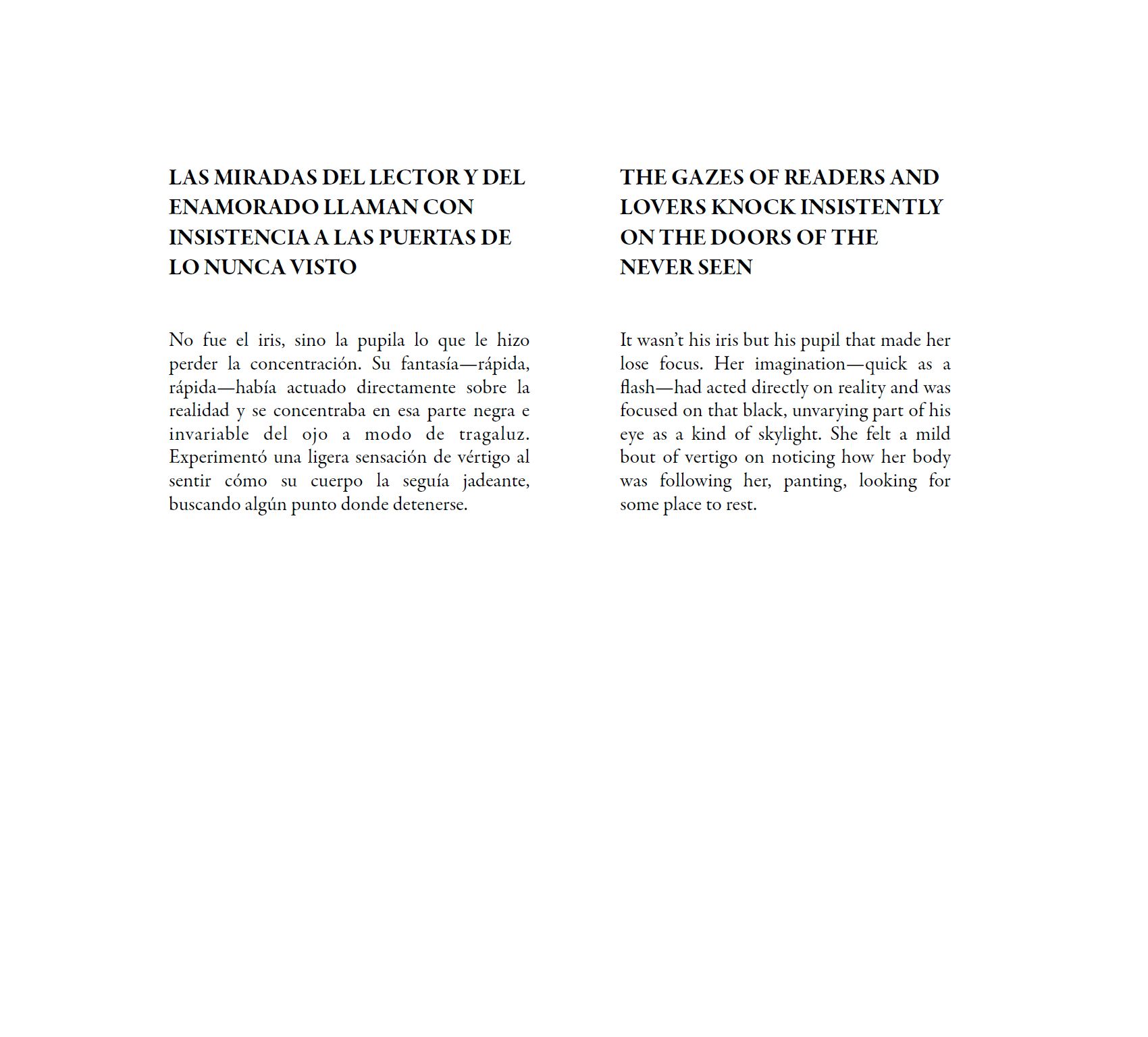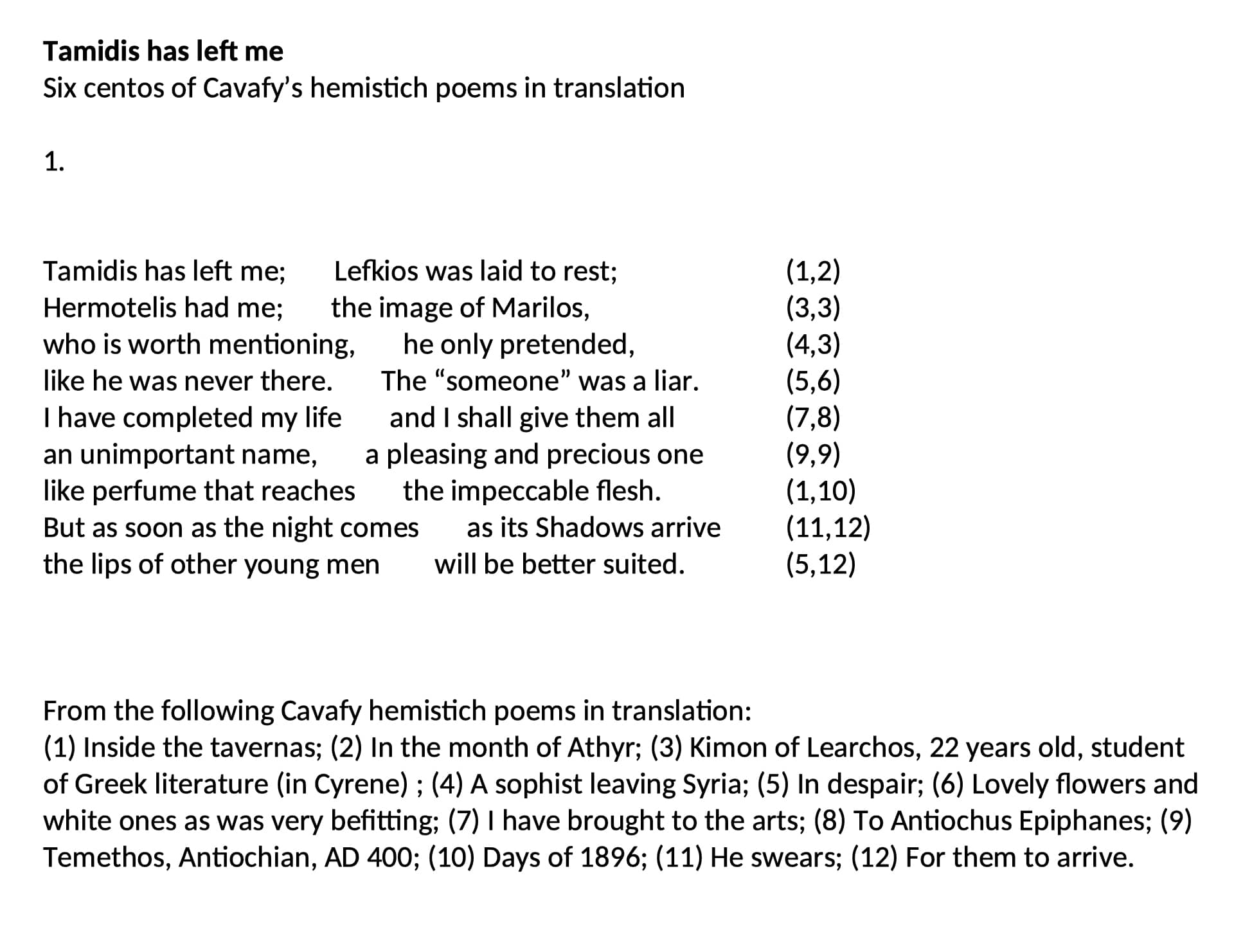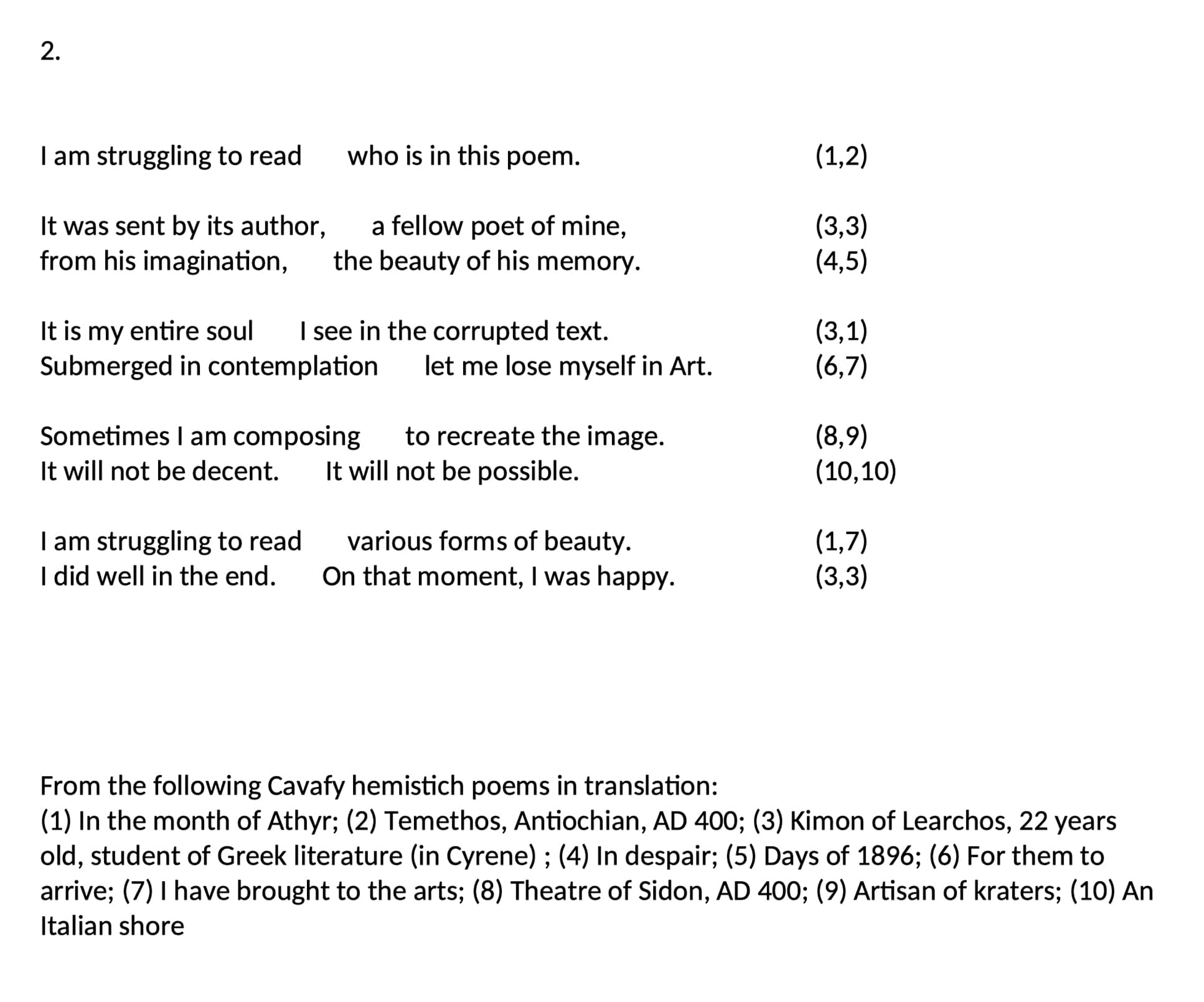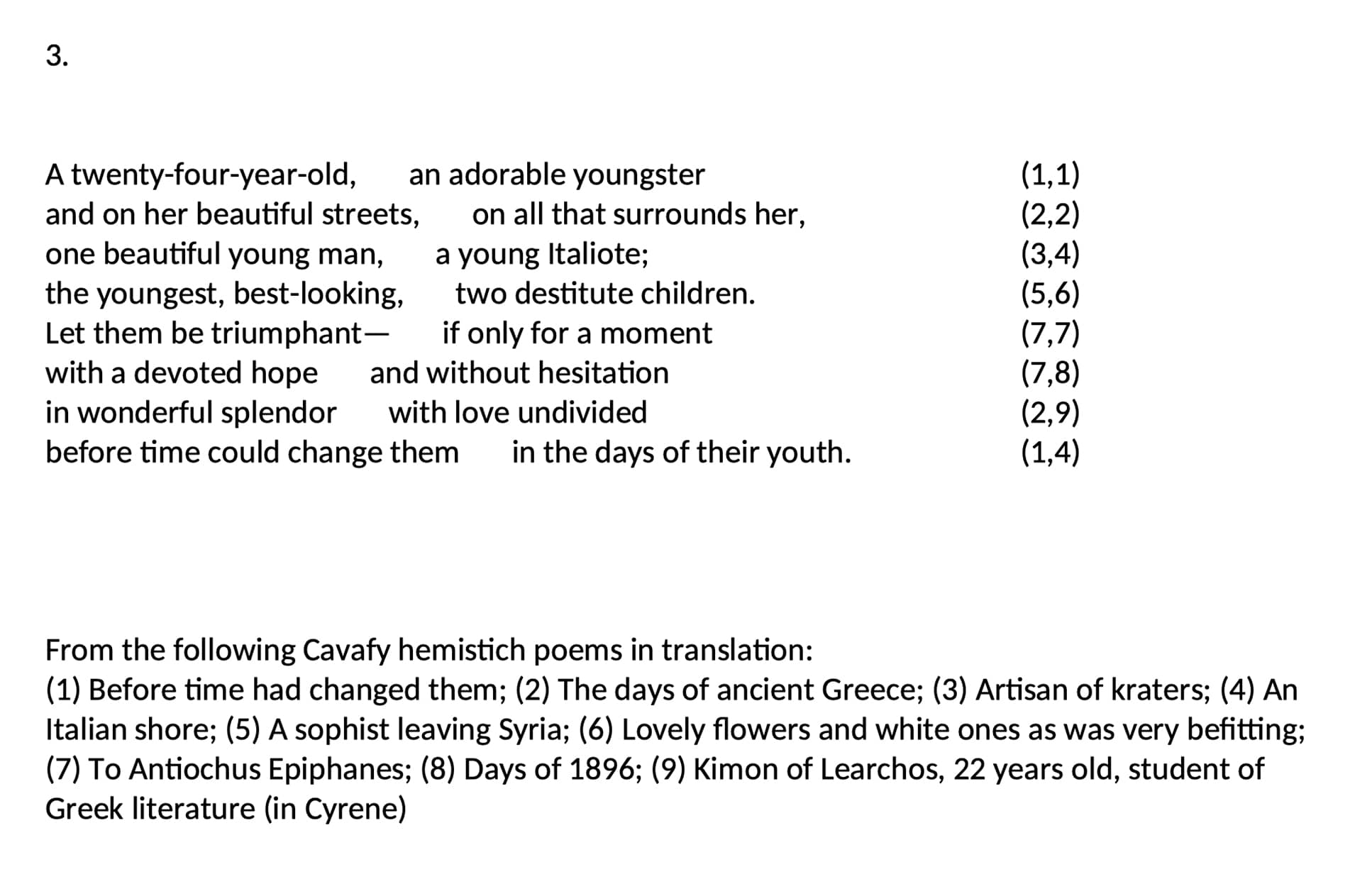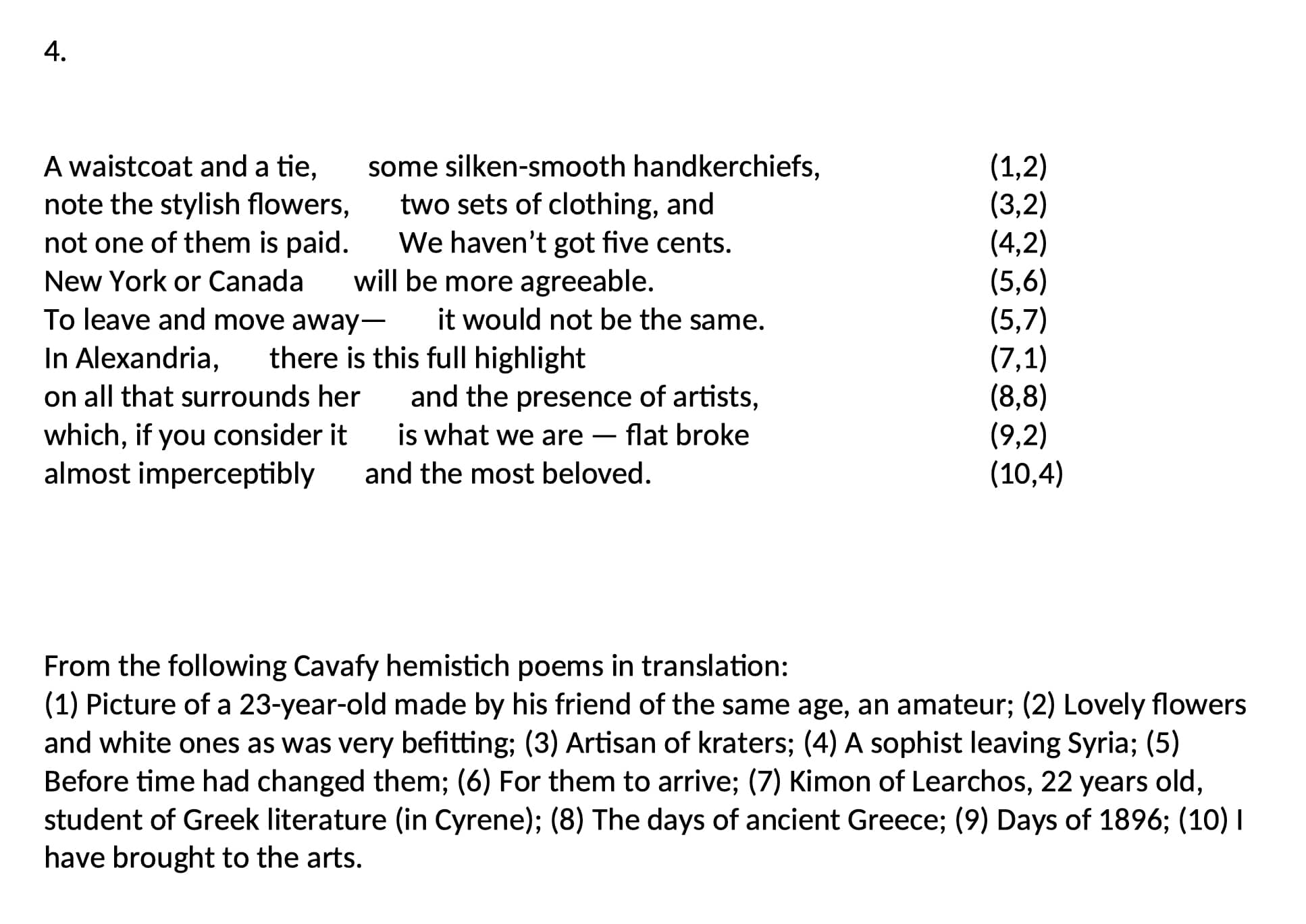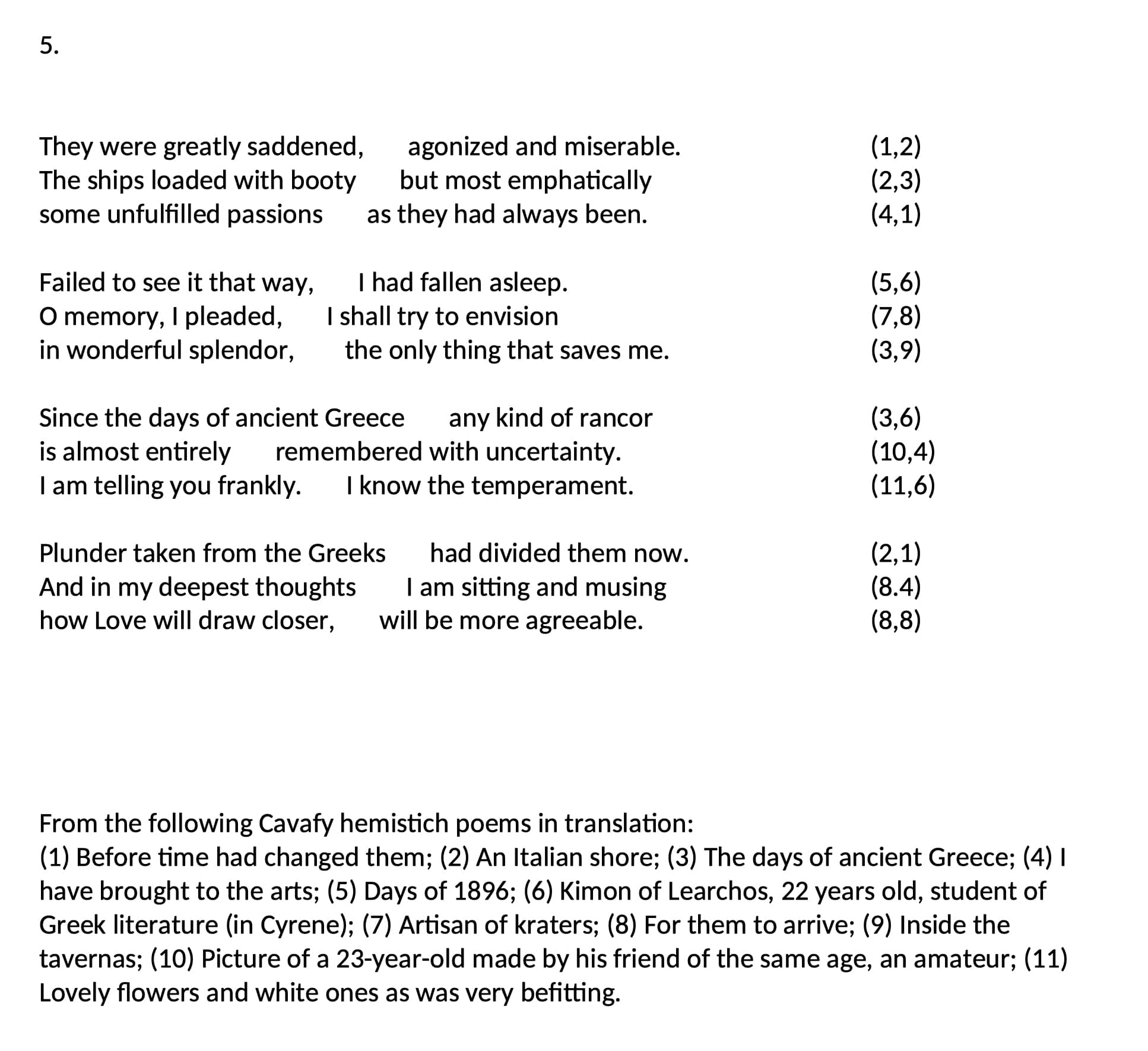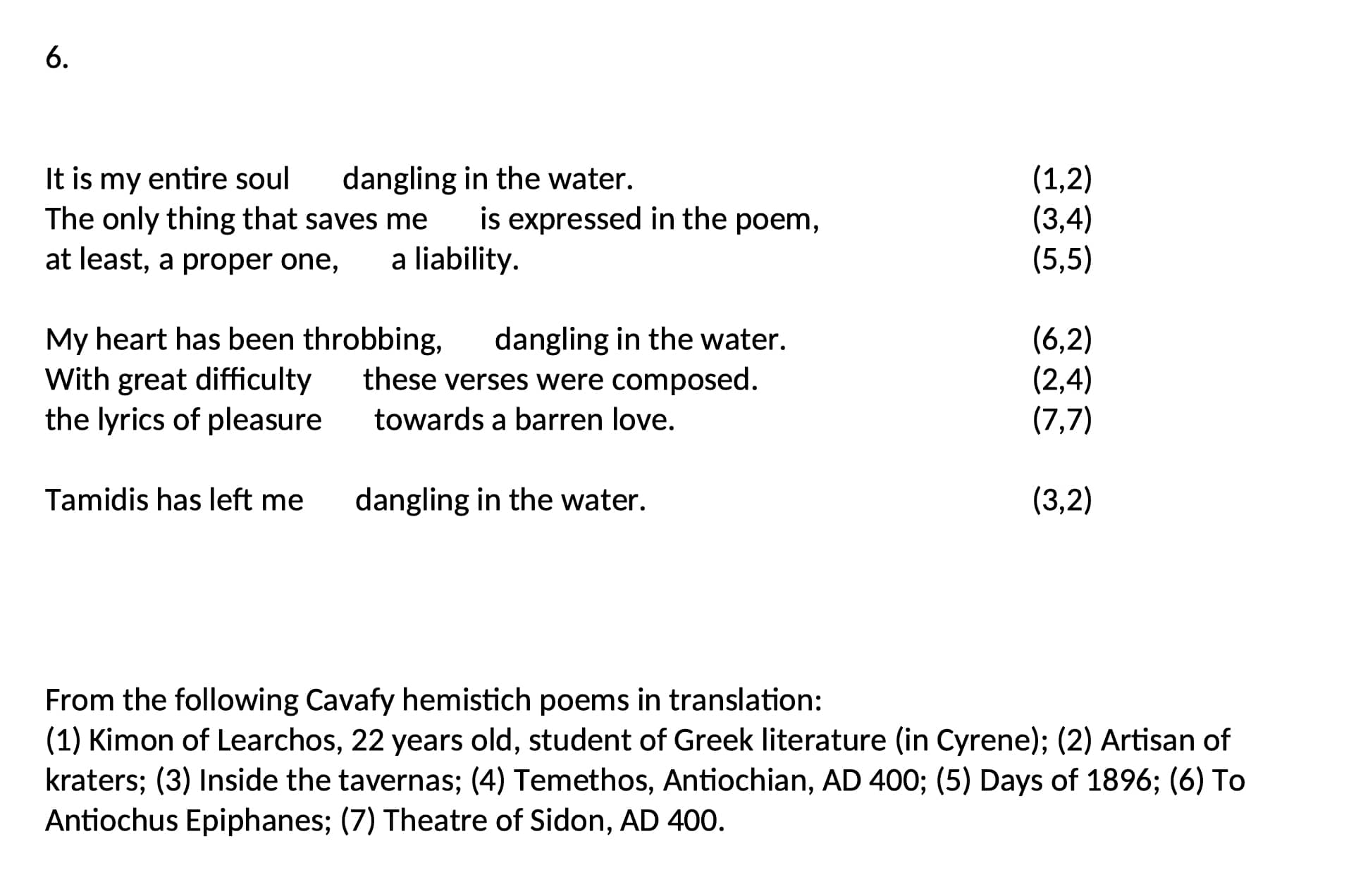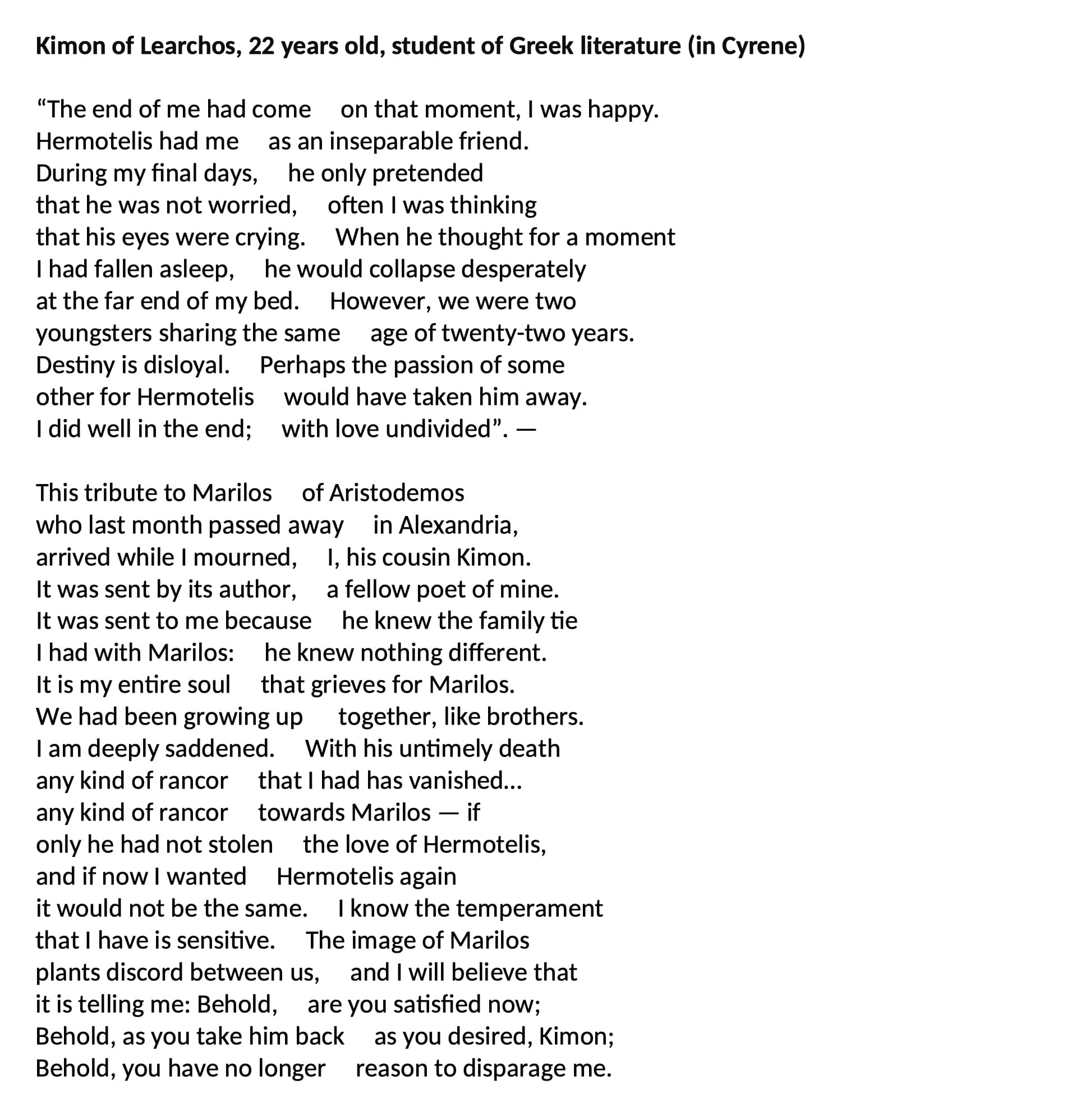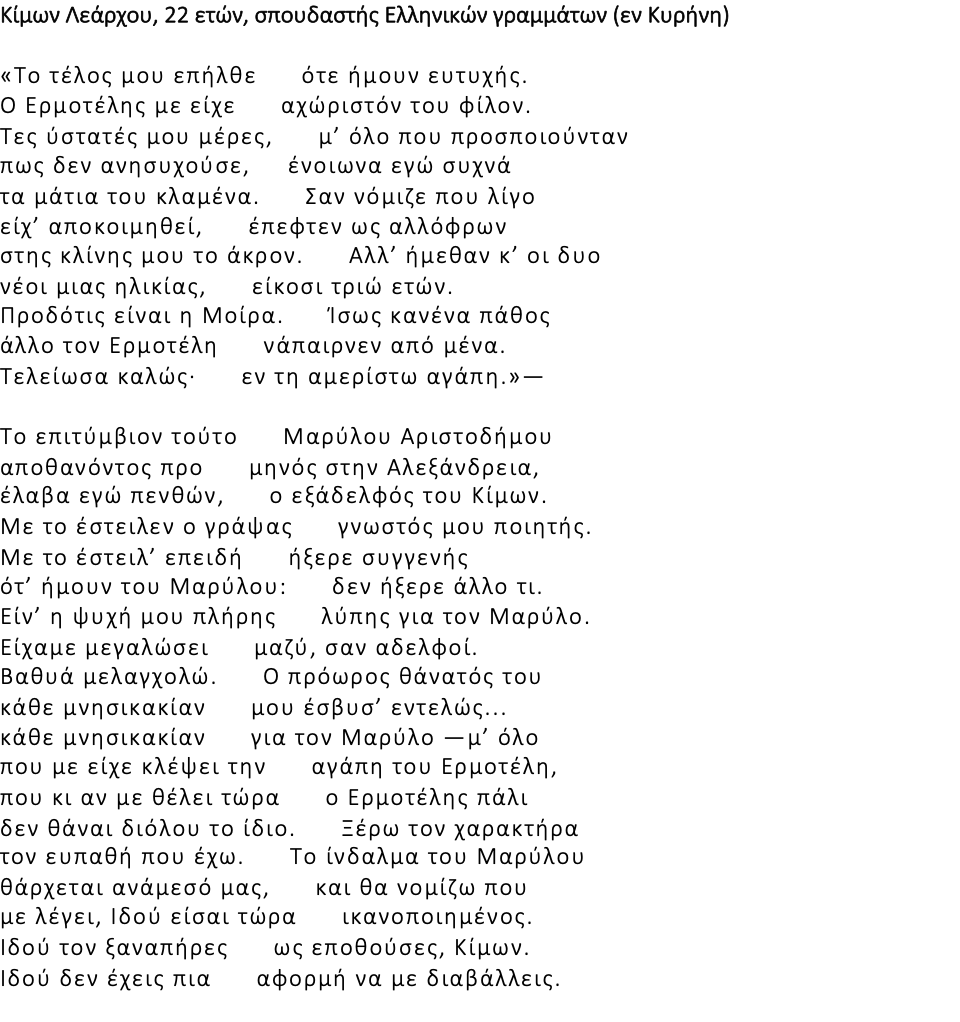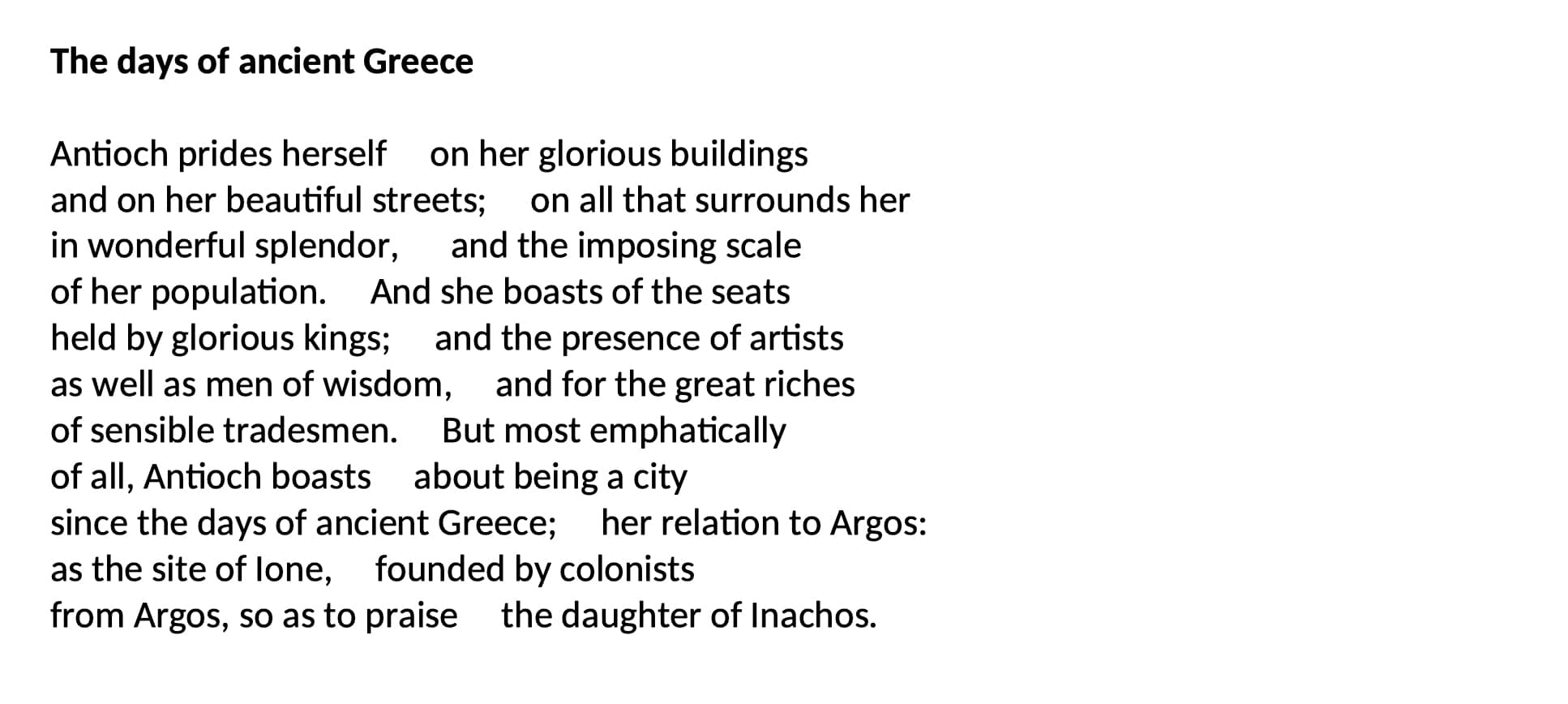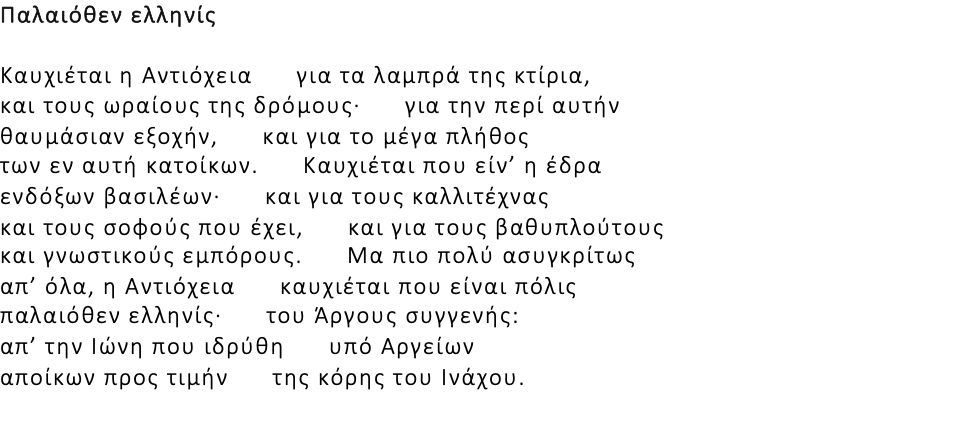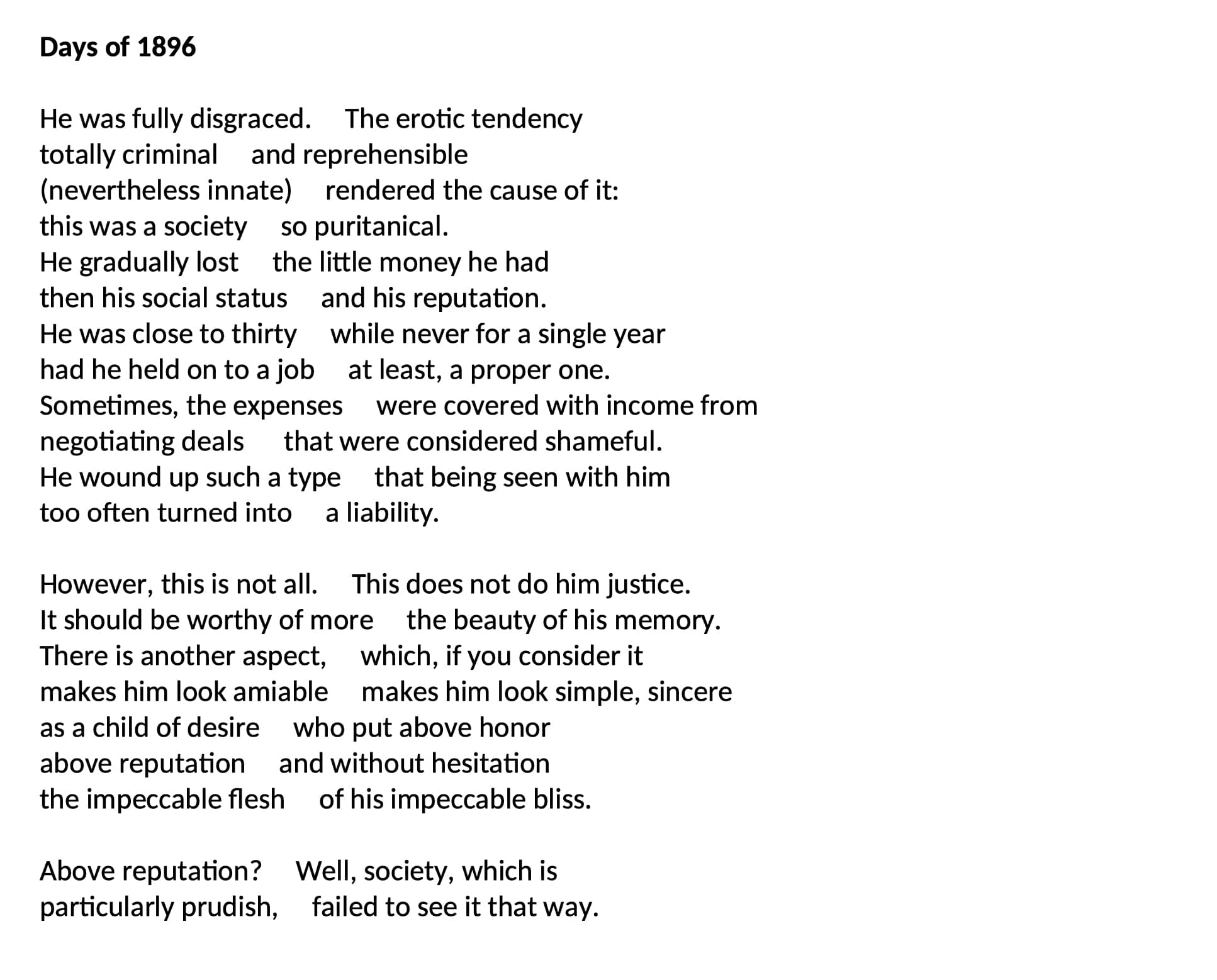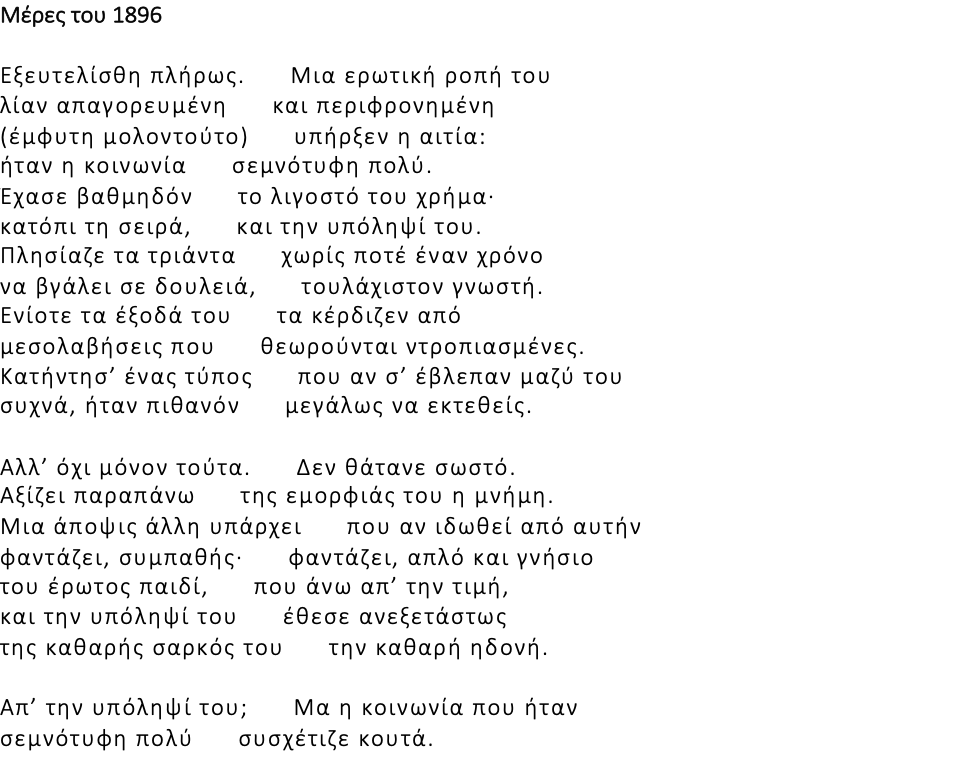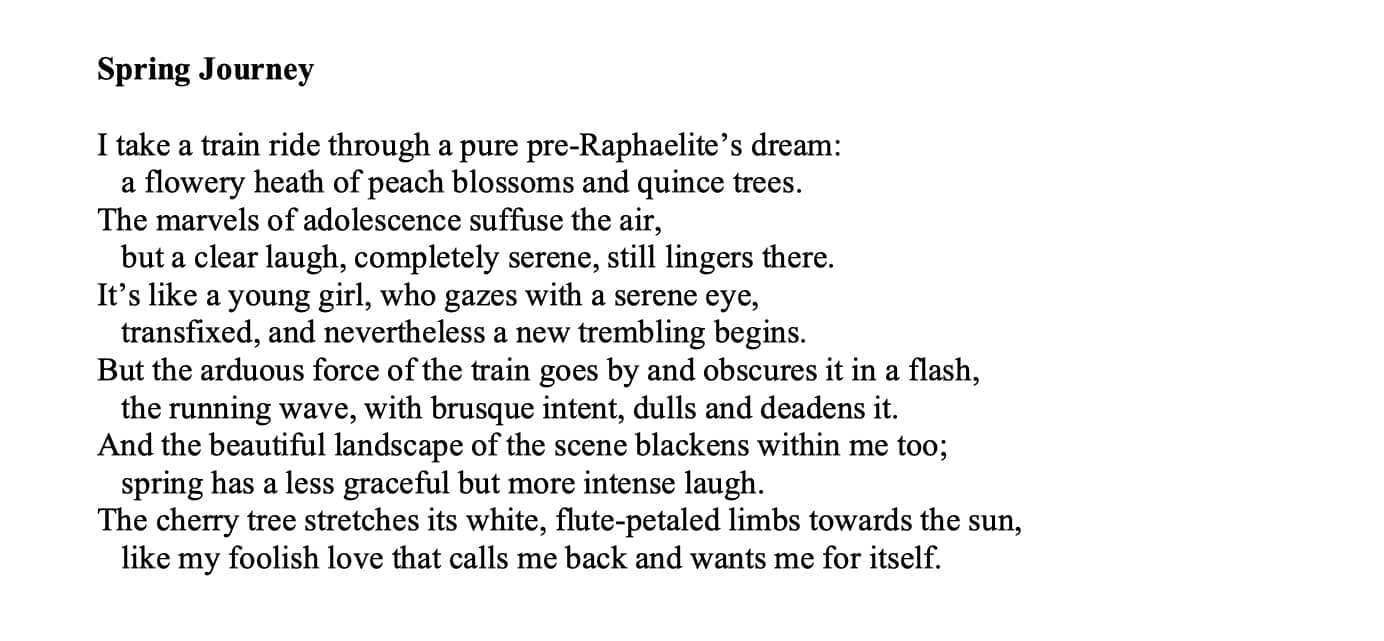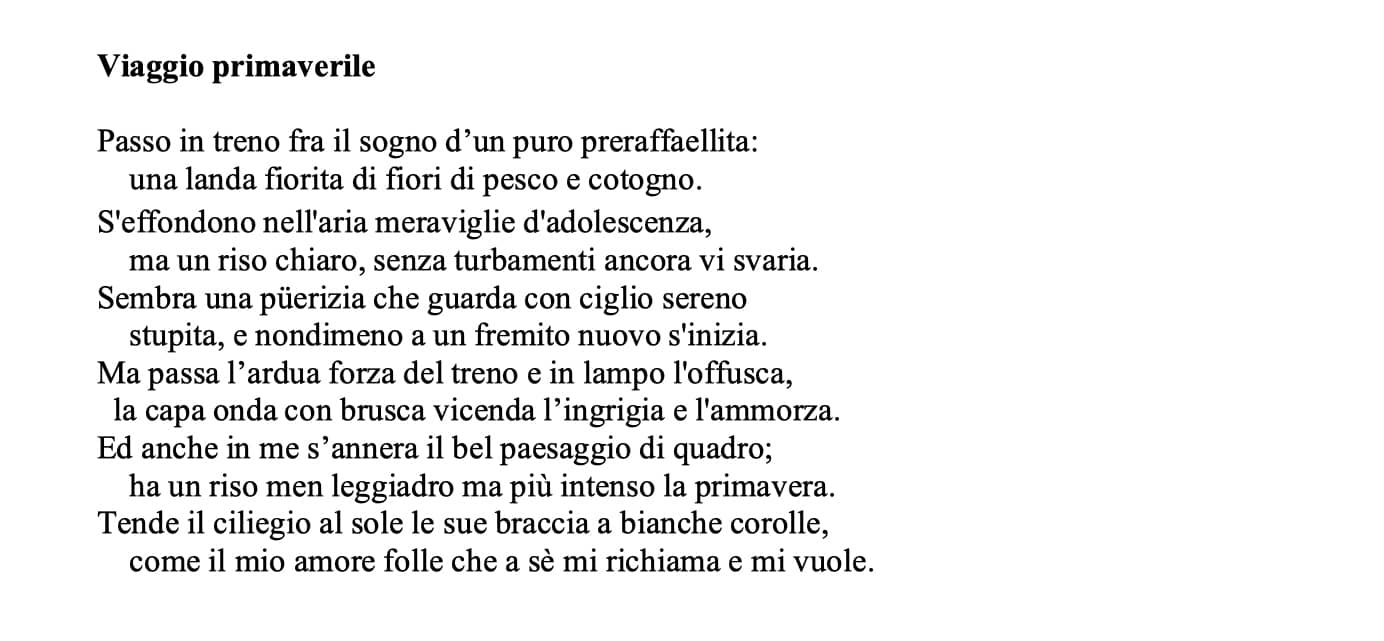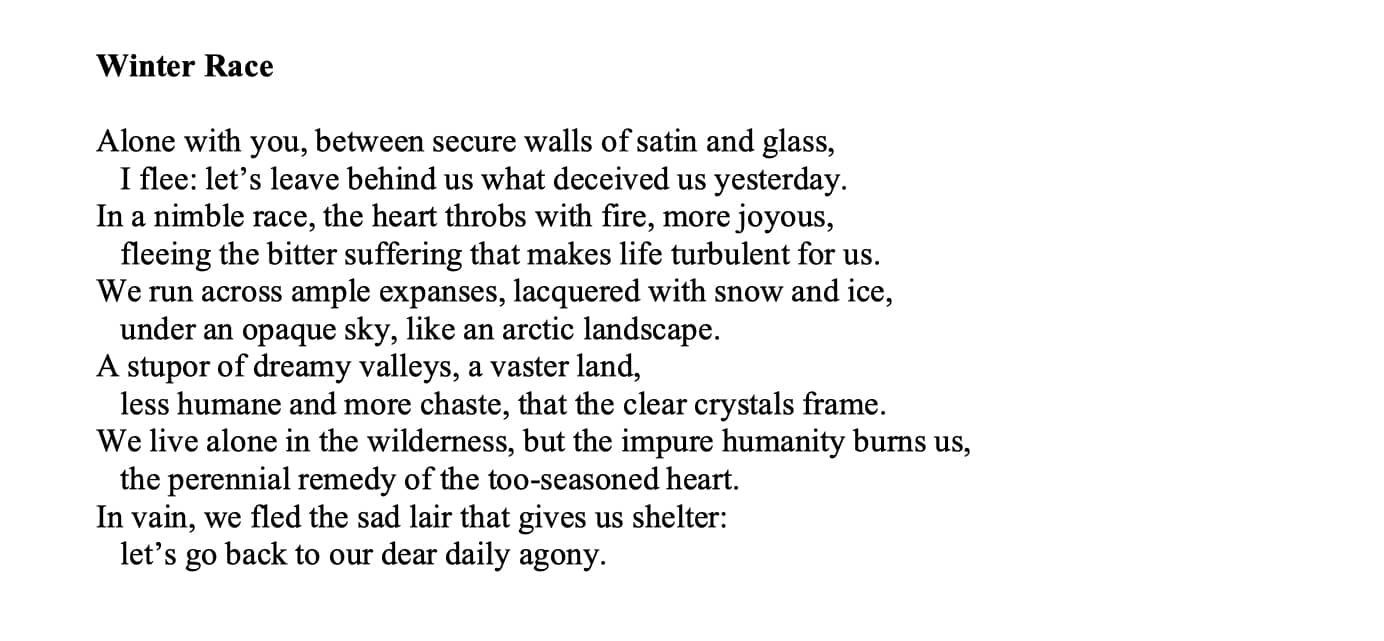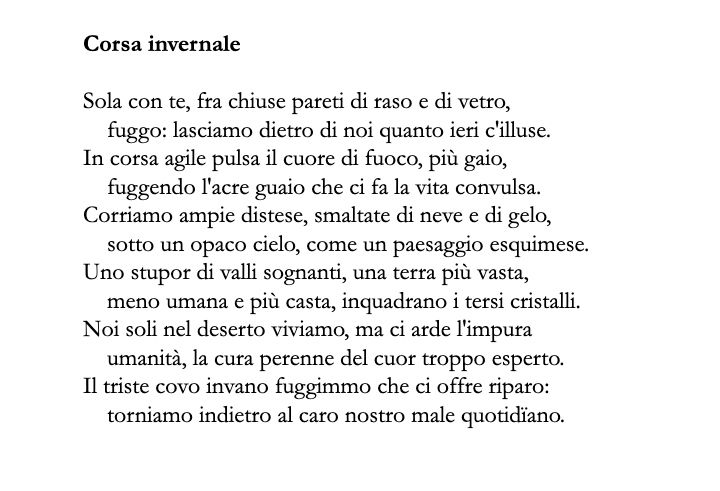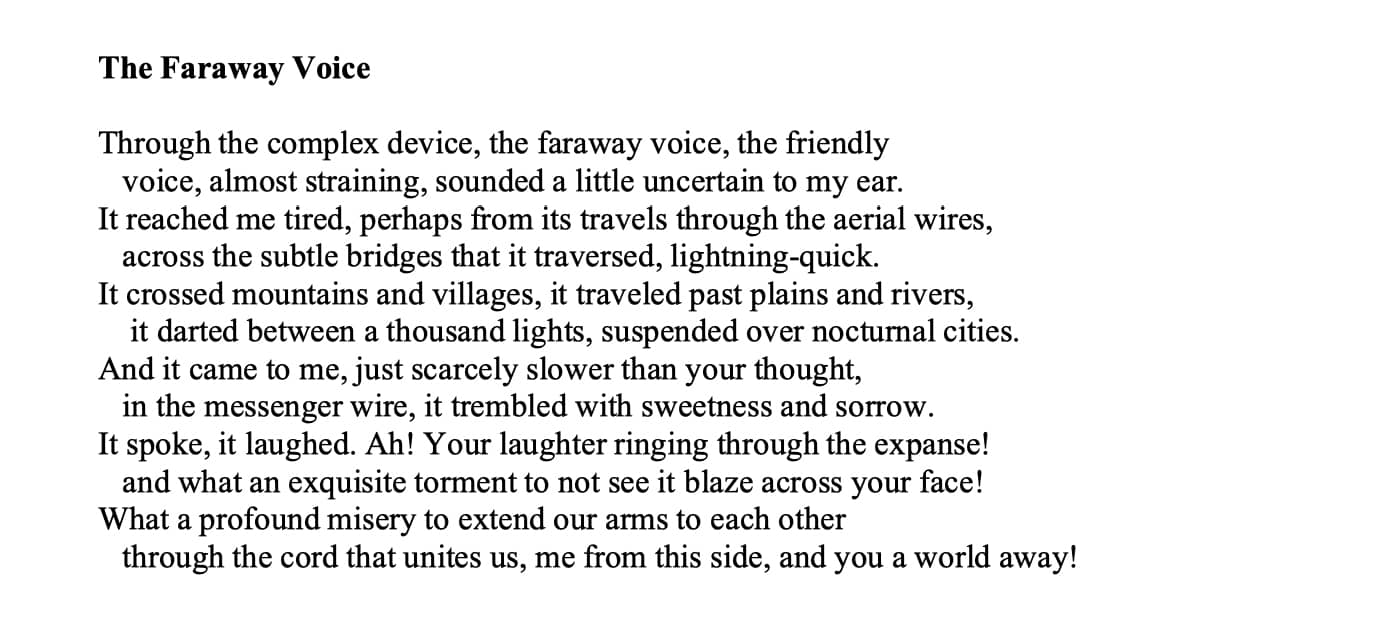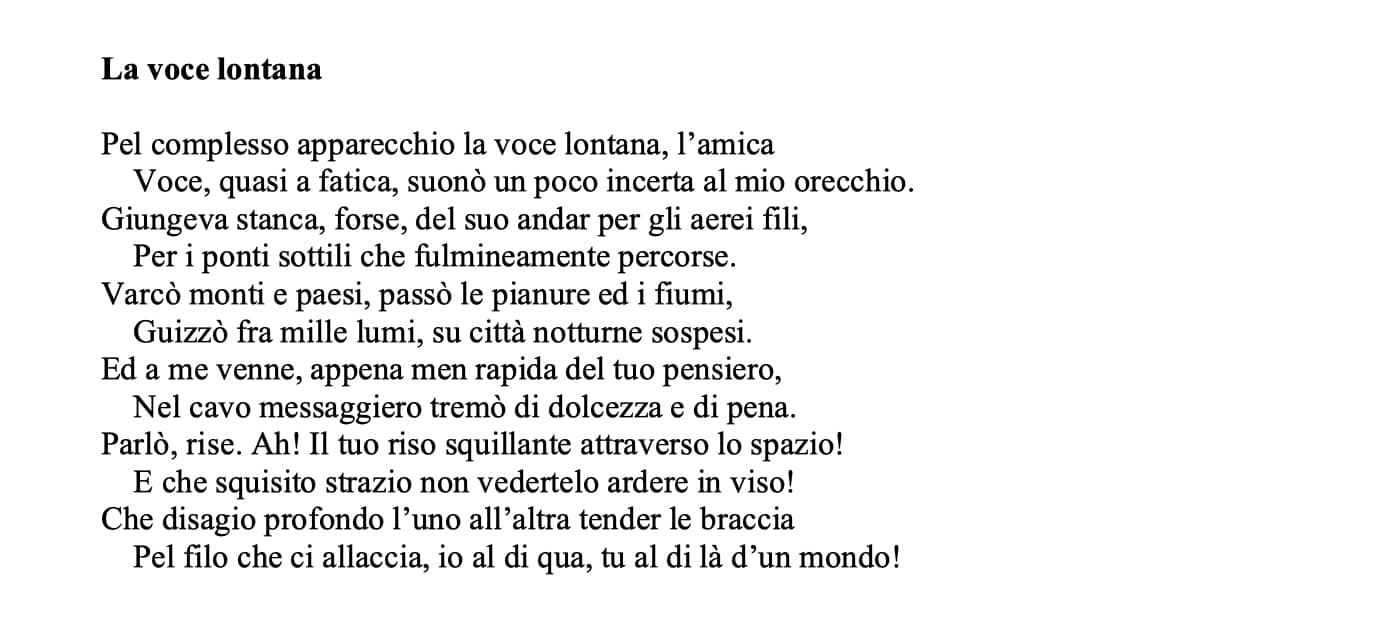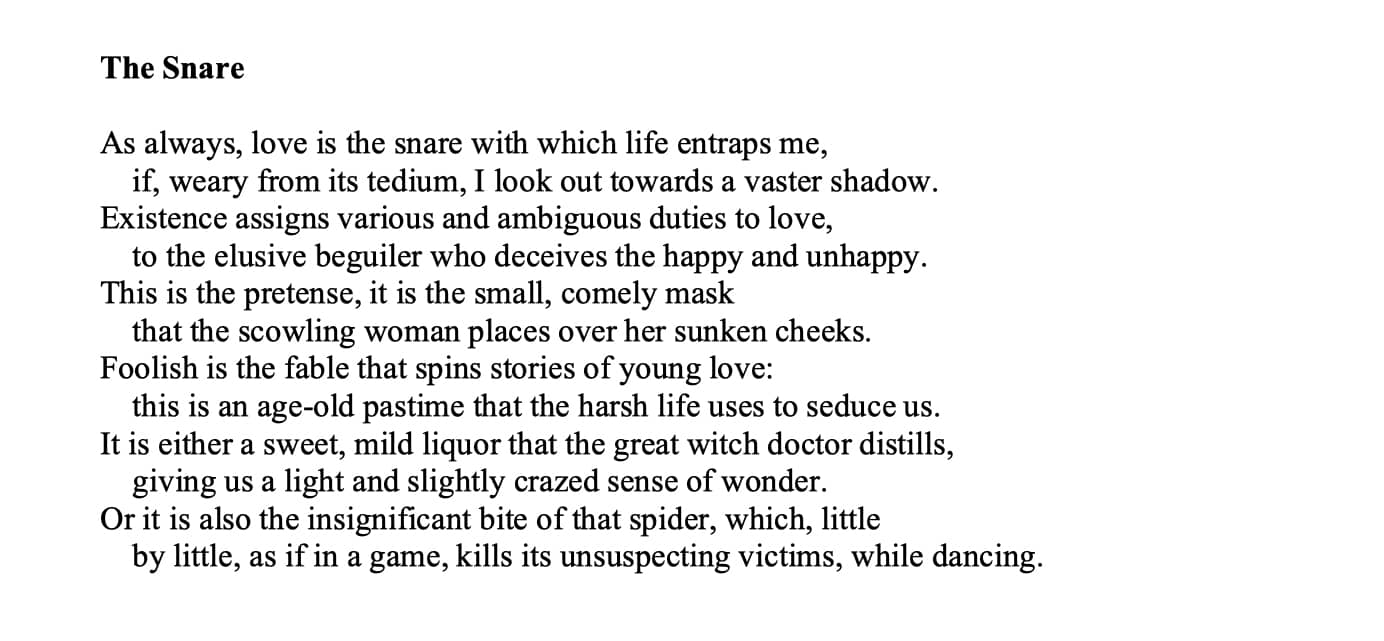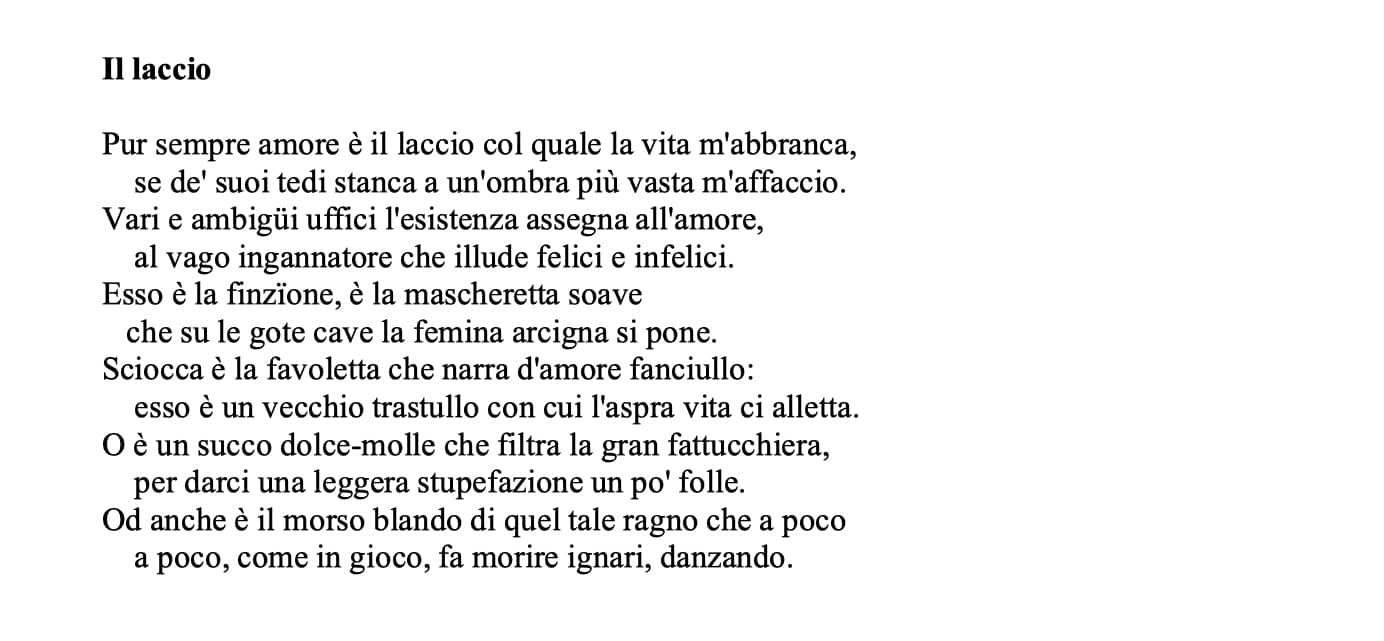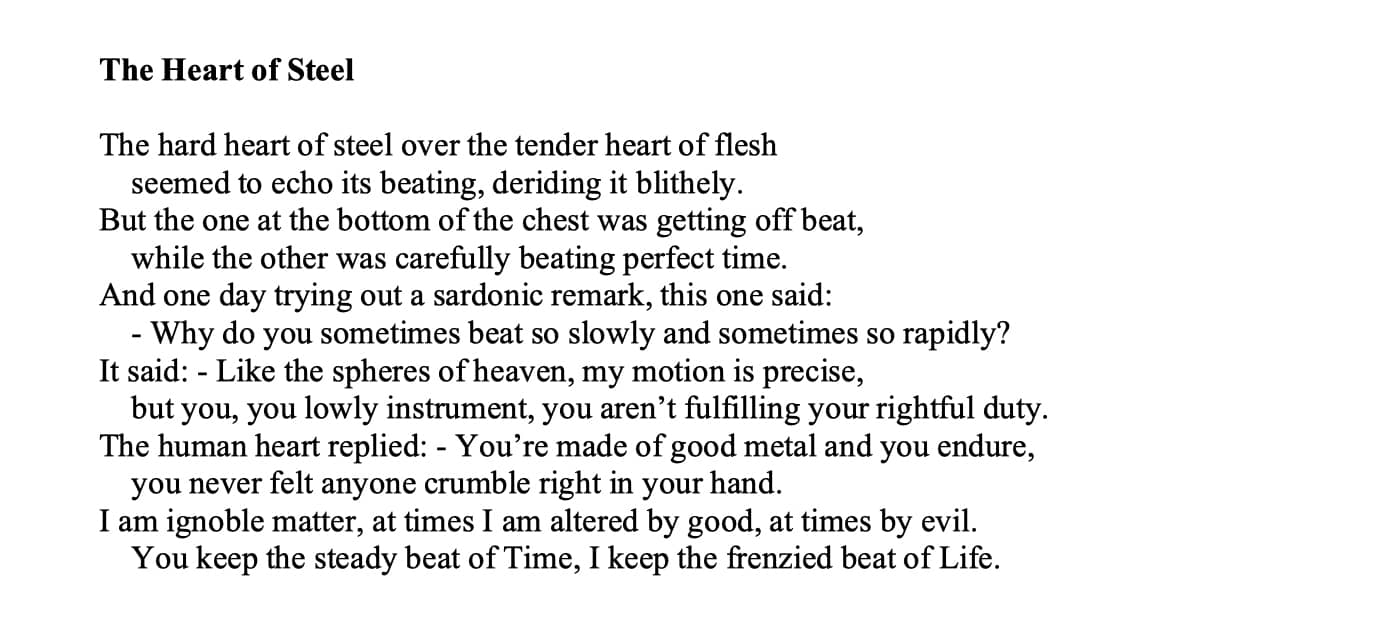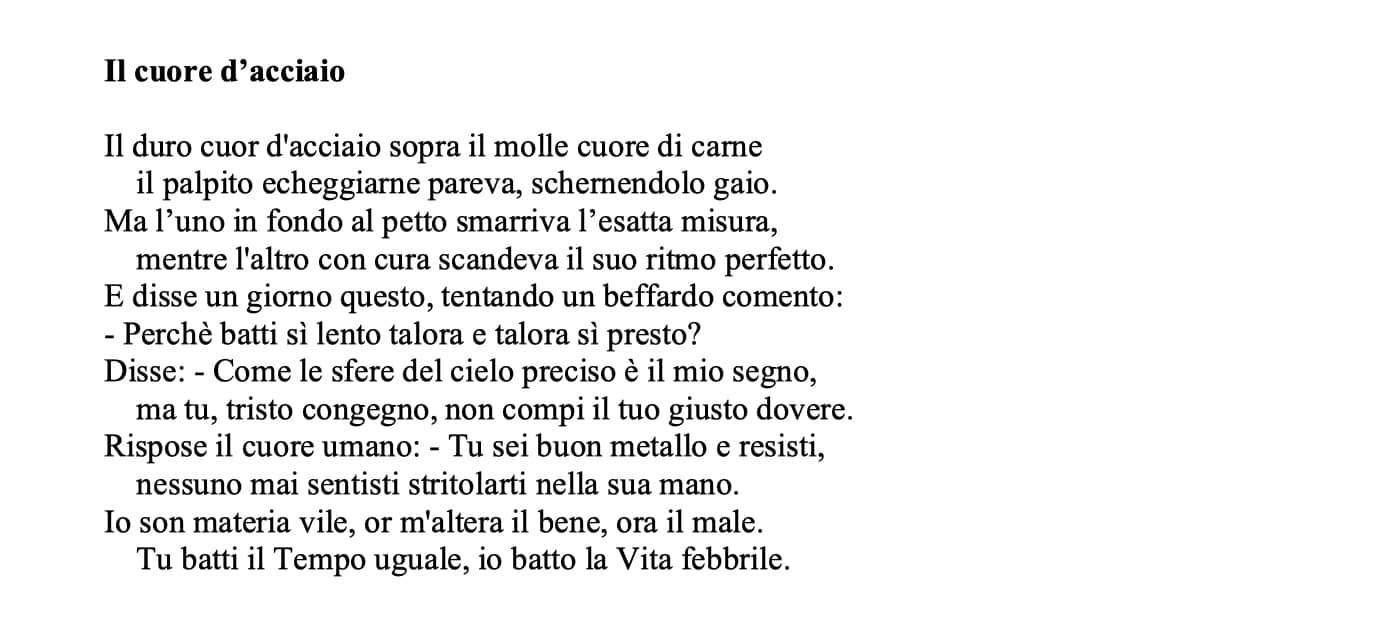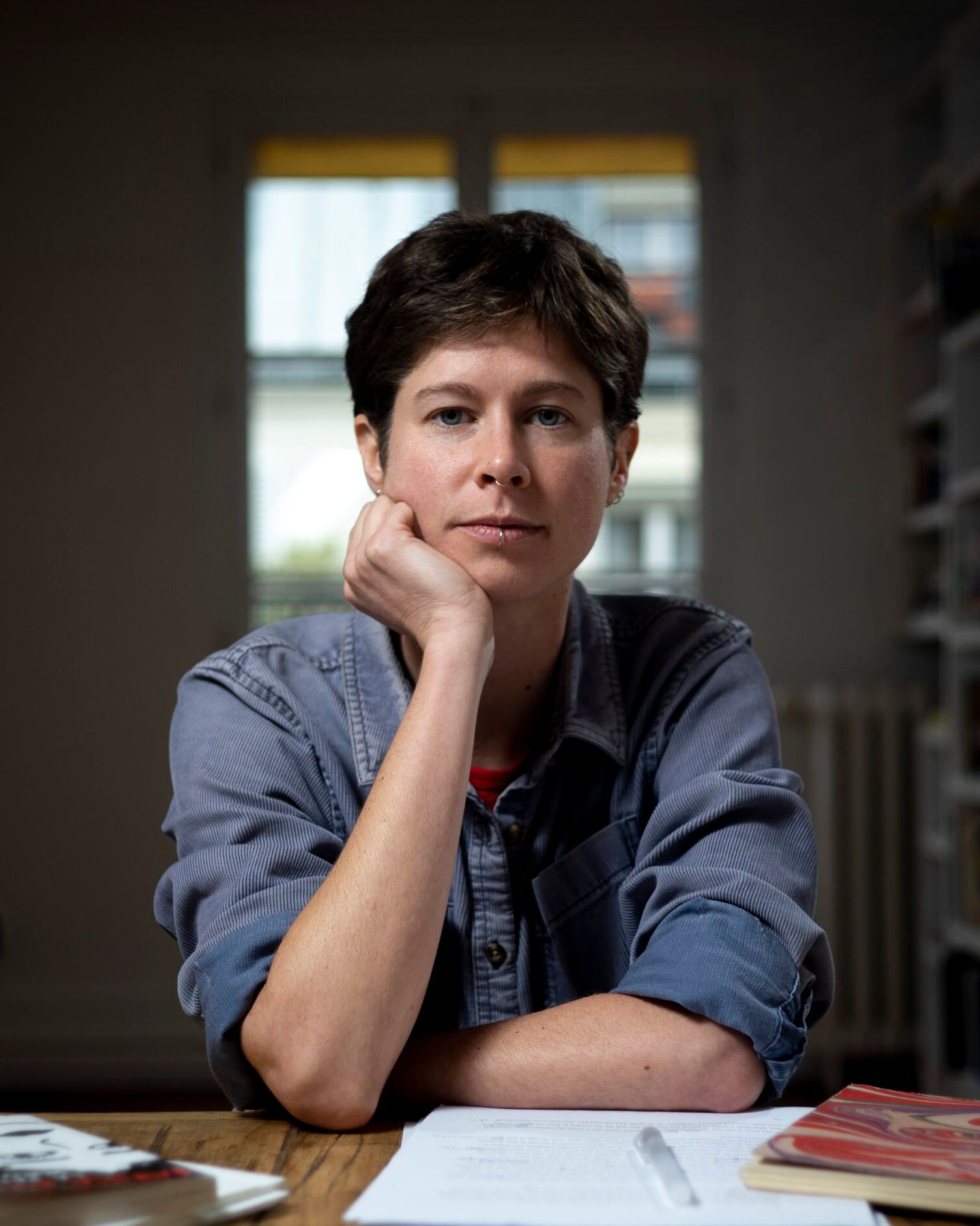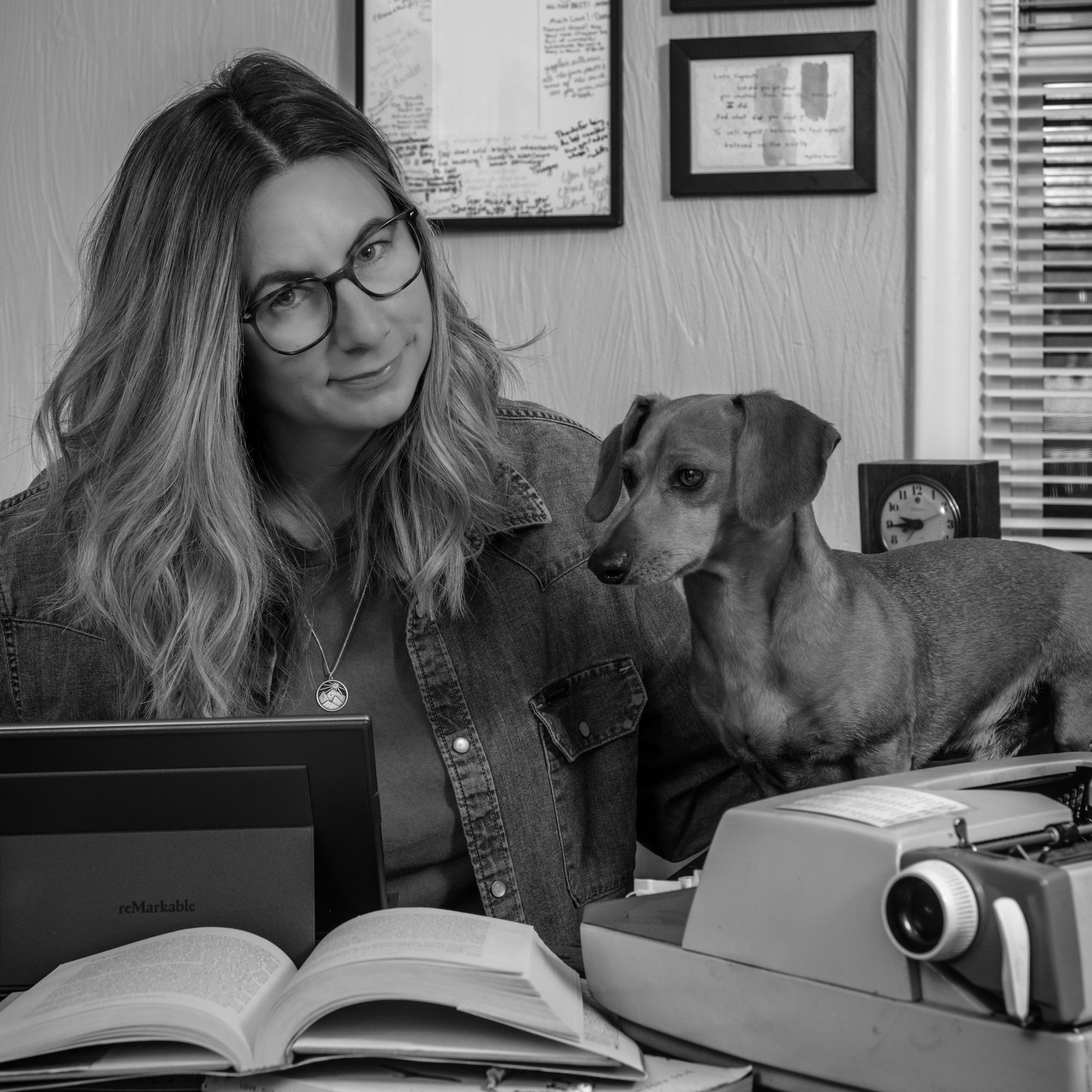È una piccola spora che sembra un sole con le sue fiammate. Un essere che si incista ed è capace di rimanere inattivo per decenni, forse secoli. Il bacillo dell’antrace è apparentemente innocuo. Materiale inerte. Dormiente.
Ma quando si verificano le giuste condizioni, se si sente nel suo ambiente, all’interno di un organismo adatto ad accoglierlo, ecco che si risveglia dal suo lungo sonno, il suo metabolismo si attiva come per incanto e secerne il suo veleno mortale. Che non si manifesta subito, ma si fa veicolare, per agire in modo devastante e letale, da alcune sostanze non pericolose, ma necessarie per la sua azione. Si lega, questa sostanza mortifera, con una proteina della cellula che lo ospita e la paralizza fino a ucciderla. Ma, per poter meglio agire, distrae l’attenzione degli anticorpi con altre due proteine non letali.
Non si direbbe, vedendo il mio viso un po’ infantile e sorridente, che dentro questo contenitore elegante, vigoroso e agile che è il mio corpo e che tengo in esercizio tutte le mattine con mezz’ora di jogging e a sere alterne con quaranta minuti di palestra, non si direbbe che vi si nasconda un veleno suadente e vischioso. E per questo, tanto più aggressivo e letale nei suoi effetti. Purtroppo lo so. Ma è la mia natura e non posso farci nulla.
Ho una bella voce; so che è dolce, e il sorriso accattivante. Mi piacciono perché mi ricordano quando ero piccolo.
Mia madre, le mie zie, lo sapevo di poterle tenere in pugno con quel sorriso. Era lo stesso che uso oggi col mio prossimo.
Non sarà un caso se mi occupo di politica – progetti ambientali - o se sono diventato un capogruppo di partito. La mia voce, il mio sorriso sono le mie armi vincenti. Dunque so come usarle con gli altri.
Soprattutto con le altre. L’universo femminile, ma in particolare il corpo di una donna, sono l’unica cosa che mi fa stare bene.
Quando sono dentro un corpo di donna, mi passano tutte le paranoie; provo finalmente una calma che mi è difficile ritrovare altrove. Forse un senso di controllato vigore.
Quelle che definisco le mie paranoie mi hanno avvelenato la vita. Avverto da sempre un’angoscia che non so spiegare. Forse dovrei riflettere di più. Dovrei cercare di capire da dove vengono certi terrori, certe sensazioni che mi paralizzano. Ma io sono così. È inutile perdere tempo ad amareggiarsi la vita.
A volte, quando la testa pare mi scoppi per l’ansia, non riesco a calmarmi se non con qualche ora di jogging o una bella scopata.
Mi dispiace usare questo termine. Ma è il solo che mi pare appropriato. Spesso le donne pensano che io mi innamorerò di loro, quando me le porto a letto. Forse perché il modo in cui faccio l’amore è pieno di tenerezza.
Non mi sono mai innamorato, se per amore si intende quel perdere la testa, il controllo. La resa incondizionata a un’altra persona. Ho sempre pensato che fosse una cosa intollerabile.
Non ho tempo per l’amore. Alla mia età, cinquant’anni, ci sono cose molto più eccitanti nella vita. Il potere, per esempio. E io quello so bene come ottenerlo e mantenerlo. Certo, costa parecchio e il prezzo è lo stress.
Per l’amore non ho tempo.
Però un corpo femminile mi calma.
Non so come mai, ad essere sincero, anche perché non è che mi piacciano sempre queste donne. Anzi, quando ho finito, provo un senso di repulsione. Lo so che può sembrare assurdo. Sembra assurdo anche a me. Eppure non so resistere. Soprattutto quando sono nervoso, quando sono nel pieno di una riunione o a un congresso, prima di parlare in pubblico. Tanto non è che le donne mi manchino. Ne trovo finché ne voglio di quelle disposte a venire a letto con me. Non vedo perché non dovrei approfittarne. Solo che dopo ho solo voglia di scappare. Quello che mi era apparso prima desiderabile e anzi irrinunciabile, poi mi dà quasi un senso di nausea.
Il fatto è che le donne belle ormai mi annoiano. Sono tutte uguali, tutte sicure di sé. Fanno le preziose, quando poi sanno quanto te che è solo questione di tempo.
Io lo dico sempre in anticipo che non mi sono mai innamorato e che non mi accadrà mai. Dunque sono onesto, no? Quand’ho chiarito questo punto, che altro c’è da dire?
Eppure non mi credono. Pensano che mi cambieranno. Ciascuna di loro pensa che compirà il miracolo. Poi, quando capiscono che non è così, dicono che sono un egoista, un immaturo, un Peter Pan, che le ho usate. Le solite storie. Noiose ormai…
Io non le capisco. Ma forse è la loro natura. Però capisco cosa le attira; io sono qualcuno e a loro il mio potere piace. Non devo fare alcuna fatica.
Così, la cosa ormai mi era venuta a noia. Avevo persino cominciato ad avere delle difficoltà… sì, insomma, capito?
Cercavo qualcosa di diverso… qualcosa che mi desse l’ebbrezza della conquista. Una cosa difficile insomma. Ma, a parte qualche scena di disperazione post coitum, quando la signora di turno si rende conto che non ci sarà un seguito, non provavo ormai altro che tedio.
Alcuni mesi fa sono andato a Londra, per una convention, e ne ho approfittato per rimanere qualche settimana per un corso full immersion in inglese. Per conto mio, senza dirlo a nessuno, tranne a un amico che lavora in Ambasciata.
Avevo voglia di starmene lontano dalle nauseanti mondanità. Voglia di depurarmi dai giochi di potere e dagli intrugli politici. Non perché mi diano fastidio – io sono bravissimo a intrecciare accordi con gli avversari e a lavorare sott’acqua – ma per poter poi ripartire a mente libera. Una sorta di ritiro spirituale insomma. E poi potevo fare jogging indisturbato in Hyde Park. Lì si può mantenere l’anonimato e la cosa mi piaceva.
Al mio ritorno c’era da preparare la campagna elettorale e volevo essere in forma per miei elettori. So bene che l’idea di votare il migliore li fa sentire a posto con se stessi e li convince a delegarti la loro vita. Quindi perché non regalare loro questa sensazione? In fondo devo a loro il mio potere. E non è gente difficile da convincere.
Dicono che due inglesi, se naufraghi su un’isola deserta e che non siano stati presentati, non si rivolgano la parola. Si ignorino. Forse anche gli inglesi sono cambiati ormai – anzi, senza forse – ma questo fu in un certo senso quel che Elspeth fece con me.
La vidi per la prima volta alla convention. Era una delle traduttrici simultanee. Inglese-italiano.
La notai per il suo aspetto fuori dal tempo. La notai e mi venne da ridere. Passava, molto efficiente, come se il lavoro che stava facendo fosse la cosa più importante di questo mondo. Aria compunta. Appuntita, direi.
Poi, quando qualcuno ci presentò, pensai che quel nome, che quasi suonava come un insulto, le calzasse a pennello.
Era lo stereotipo della zitella inglese come la descrive nei suoi romanzi Henry James. O uno di quei personaggi da museo delle cere di Madame Tussaud.
Elspeth avrà avuto forse trentacinque o trentasei anni, ma non le si riusciva a dare una qualunque età. Capelli folti, castani, un po’ opachi, spartiti da una scriminatura centrale, che le scivolavano ai lati del viso in due perfetti bandeau, per raccogliersi poi dietro in un nodo basso e molto stretto.
La pelle lievemente arrossata per la couperose, non liscia, con minuscole bollicine in rilievo, tendeva a squamarsi ai lati delle narici. Il naso lungo terminava in una punta carnosa. Gli occhi chiari, di un colore poco definito, le labbra sottili e sempre serrate.
Mi ero divertito a notare tutti questi particolari nei momenti di noia della convention. Io, che di una donna guardo solo il corpo.
Io che di una donna ormai non guardo più nulla.
Elspeth arrivava sempre vestita di gonne alla caviglia e grossi golf o giacche, ma con camicette dal collo di pizzo e scarpe alla Mary Poppins. Mi pare che in Inghilterra si chiamino Mary Jane.
Francamente ridicola. Ma proprio per questo mi aveva incuriosito. Da noi una così non la si vedrebbe mai, mi ero detto.
Avevo tentato di instaurare un minimo di conversazione nel mio inglese stentato, ma lei mi aveva quasi ignorato. Credo non avesse capito chi sono. Così un giorno, durante una pausa, chiesi a qualcuno di presentarci.
Quando le spiegai che ero italiano, divenne improvvisamente loquace. Si mise a parlare nel suo italiano anglicizzato. E, non so perché, mi raccontò parecchio di sé. Forse per via dei miei interessi ambientali. Agli inglesi queste cose piacciono molto.
Oltre a fare l’interprete in alcune occasioni, era bibliotecaria in un college e si dilettava a riprodurre ad acquarello – certo, come non ci avevo pensato? - i fiori e le piante rare di Kew Gardens.
Ogni anno andava con sua madre, che viveva nel Surrey, al Chelsea Flower Show, per ammirare – sue testuali parole – “l’incanto dei nuovi ibridi, il mistero degli incroci, le rose da concorso”… così disse: giuro.
Lei parlava, parlava e io la guardavo, quasi rapito dalla sua bruttezza.
Ma poi, non che fosse così brutta. Nello squallore del suo aspetto spento, c’era una sorta di grazia ammuffita. La studiavo come se stessi analizzando un territorio sconosciuto. Era un tipo di donna che infatti non mi era mai capitato di incontrare. E questo mi incuriosiva. Direi che quasi… mi eccitava. Ma questo pensiero mi era parso così assurdo e quasi osceno, che l’avevo subito cancellato.
Conclusi i lavori della convention, tempo ne avevo e scoprii che la mia scuola, dove si tenevano le lezioni di inglese, non era distante dalla sua biblioteca. Così studiai i suoi orari e finsi di trovarmi per caso di fronte all’uscita quando lei aveva l’intervallo per il pranzo. Elspeth mi incuriosiva.
Mi parve che fosse contenta di avermi incontrato, anche se non lo mostrò affatto, però accettò di mangiare qualcosa con me alla caffetteria.
Un po’ alla volta trasformai questo incontro “casuale” in un’abitudine e lei non oppose la minima obiezione. Credo che le capitasse raramente di intrattenersi con un uomo per tanto tempo. Ed era certamente grata del fatto che un uomo importante le dedicasse la sua attenzione.
Io avevo deciso di parlare poco. Preferivo osservare lei. Cosa per me davvero rara.
Era così patetica quando parlava, con quell’aria seria e sussiegosa, che probabilmente le dava la sensazione di mantenere le giuste distanze.
Non so se in quella fase si sia chiesta il perché del mio interesse per lei. Per me era divertente guardare quella donna avviata verso la maturità e bruttina alle prese con uno come me. Era divertente, ma mi dava anche delle sensazioni nuove, o dimenticate da tempo immemorabile. Perché, quanto tempo era passato da quando avevo osservato una donna con tanta attenzione? Lasciamo stare il fatto poi che il mio interesse non fosse suscitato dal suo aspetto o dalla possibilità di un’immediata…(rabbrividivo alla sola idea!) fruizione dell’oggetto della mia attenzione.
Durante queste sue pause-pranzo, Elspeth mi intratteneva elencandomi le meraviglie dei più famosi illustratori di piante e devo dire – a parte il fatto che lei avrà sicuramente scambiato il mio silenzio attento per curiosità nei confronti dell’argomento – che la ragazza se ne intendeva.
<<Lei ha sentito parlare del Botanical Magazine? Ora si chiama Kew Magazine. È la più antica rivista botanica, fondata nel 18° secolo, in seguito all’intensificarsi delle spedizioni esplorative e delle scoperte della Royal Navy.>>
<<Sì… mi pare…>> rispondevo distrattamente, fissando la sua pelle che nella foga della conversazione diventava ancora più rossa e i puntolini ancora più evidenti.
<<Ferdinand Bauer è stato l’illustratore botanico ufficiale della fortunosa esplorazione di Matthew Flinder in terra australiana….oh è il mio artista preferito. Francis, suo fratello, non era da meno. Ma anche Ehret. Ha mai visto nulla di Ehret?>>
<<No…non credo…>>. Ma le mie vaghe risposte non parevano frenare il suo entusiasmo. Tuttavia la mia voce, pur usata parcamente, era ancora più dolce e si accompagnava al più suadente dei miei sorrisi.
Non è il senso di ciò che si dice, ma il modo in cui lo si dice che conta. Il veicolo è tutto. Io ne sono la prova vivente. I miei elettori ne sono la prova lampante.
<<Oh, se lei vedesse il suo Hibiscus Manihot! Che raffinatezza nei tratti, o la Theobroma Augusta! Santo cielo, quelle sfumature azzurro-grigie sulle foglie! E le farfalle! Ma sa che quando ho visto per la prima volta l’Odontoglossum Grande di Walter Fitch, quell’orchidea lussureggiante e carnosa…? i versi di Byron! Ecco. Ho pensato a Byron!>> Mi parve che arrossisse per la sua audacia…
Elspeth parlava sempre col punto esclamativo, pur mantenendo, non so come ci riuscisse, le labbra stirate e gli occhi socchiusi. Il suo viso pareva immobile. Le si alterava solo il colore della pelle.
Ma, a parte l’arte del Rinascimento italiano – oggetto dei suoi studi universitari – e l’amore per la botanica, unici argomenti di cui parlava, evitando ogni discorso personale, pareva non avere altre passioni. Il che mi suonava strano. Dov’era il suo punto debole?
Così prendemmo a vederci tutti i giorni, nello spazio confinato della sua pausa-pranzo.
Quella ragazza inglese, insipida e attempata, su cui le cose quotidiane della vita pratica parevano scivolare come gocce di condensa su un vetro appannato e che sembrava vivere trapiantata dentro delle illustrazioni d’arte, come se fossero lo sfondo di un ritratto, uno di quei ritratti immobili alla Pisanello, mi affascinava. Come può affascinare una mostruosa specie botanica, o un qualche goffo e strano coleottero raro.
Elsepth sembrava indifferente a qualsiasi richiamo sessuale. Ma io di donne ne capisco eccome e sapevo benissimo che non poteva essere così.
Allora mi misi in mente, per uno di quegli istinti perversi e sadici che a volte mi attraversano il cervello – oh sì, lo so che li ho, ma non sono in grado di arrestarli – di sedurre questa Elspeth.
Era solo un esperimento in fondo. Non volevo far male a nessuno. Ero convinto che non fosse del tutto asessuata, come voleva far credere, ma che fosse corazzata da strati induriti di difese spessi quanto una montagna. La sana repressione puritana elevata alla massima potenza.
Ma era una donna no? E a me le donne non hanno mai opposto troppa resistenza. L’unico problema qui – e in fondo anche lo stimolo maggiore per me – era quale tattica adottare. In fondo non avevo mai avuto a che fare con un simile pezzo d’antiquariato, più unico che raro ormai persino nel suo paese.
Dalle mie caute esplorazioni sulla sua vita privata – argomento sul quale lei sorvolava costantemente - avevo ricavato ben poche informazioni, ma mi pareva di aver capito che avesse avuto un unico amore platonico per un uomo molto più anziano di lei e forse non molto incline alle grazie femminili.
Mioddio, era così perfetta da sembrare inventata. Nemmeno le sorelle Brontë avrebbero osato descrivere un tipo come lei, per timore di essere tacciate di eccessiva fantasia.
Ma non era il caso di sottovalutare la sua corazza.
Di una cosa ero certo: alla mia minima mossa falsa, alla minima forzatura, la mosca sarebbe volata via prima ancora di sfiorare la mia ragnatela. Era la parte più divertente. Dosare. Avanzare quel minimo che mi pareva consentito e poi arrestarmi. Retrocedere apparentemente. Misurare. Ma le proporzioni di quel minimo crescevano di giorno in giorno. Tuttavia ero molto lontano dalla meta e il tempo stringeva.
Mi divertiva moltissimo l’idea di creare un po’ di scompiglio in quell’animo inamidato e costellato di primitivi senesi, di archi brunelleschiani, di affreschi giotteschi, di acquarelli botanici e simili assurde fughe dalla sanguigna realtà.
E più contemplavo il suo irrimediabile scialbore, più constatavo quanto di naftalina sapessero i suoi golf oversize, più questo “demone della perversità”, questo veleno, mi spingeva a trovare la breccia per penetrare dentro di lei.
Perché Elspeth non mi cadeva ai piedi? Perché non mi invitava nel suo appartamento, come una volta le avevo cautamente chiesto, in tono distratto? Alla fine era chiaro che le piacessi. Sapevo benissimo di piacerle.
Allora mi aveva detto che la sua padrona di casa non ammetteva visite maschili. Ma questo mi era parso eccessivo persino per una come Elspeth. Né lei avrebbe mai acconsentito a venire nel piccolo bilocale vicino a St. James’s, che avevo affittato per il mio soggiorno. Figuriamoci!
Un’idea. Dovevo farmi venire un’idea. Ma quale?
Finché un giorno l’idea venne. Geniale direi. Le dissi che, rovistando fra le numerose librerie antiquarie che si trovano intorno a Museum Street, avevo fatto una scoperta eccezionale. Addirittura un piccolo gruppo di tre fogli originali di Francis Bauer, il fratello di Ferdinand. Elspeth me ne aveva parlato. Mi aveva detto che il valore commerciale delle sue opere era inferiore a quelle del fratello, ma lei riteneva che da un punto di vista artistico i due si eguagliassero. Dunque, perché non avrei potuto trovare qualcosa del genere da qualche mercante di stampe?
Elspeth non pareva capacitarsi quando glielo dissi. Andai appositamente a comunicarle la notizia una sera verso le cinque e mezza, all’uscita dal college.
Elspeth mi guardò incredula. Poi, i suoi occhi acquosi si accesero.
<<Ha un tesoro, si rende conto? Oh se potessi vederli, toccarli. Non ho mai tenuto in mano una cosa simile, se non nella biblioteca di Kew Garden. Ma che soggetti sono? Disegni o acquarelli? Piante, fiori? Cosa? Non posso crederci… me li farai vedere Valerio?>> La voce aveva un’animazione nuova, quasi concitata.
L’emozione l’aveva fatta passare inavvertitamente dal lei al tu. Era già un punto a mio favore.
Ci incamminammo insieme, per la prima volta, attraversando Portman Square, diretti a Marble Arch, dove lei prendeva il suo autobus per tornare a casa e per tutta la strada non fece che parlare.
<<Perché non giriamo per Baker Street, dove c’è quella sala da tè così caratteristica?>> le chiesi a bruciapelo. <<Prendiamo qualcosa prima che tu salga sull’autobus.>>
Elspeth si fermò esitante. Era indecisa e poi disse di no, che non poteva assolutamente. Però aveva avuto un attimo di esitazione. E per me questo significava un buon passo avanti. Prima avrebbe detto di no con decisione, senza nemmeno riflettere. Ma si riprese e osservò con ritrovata freddezza: <<Da noi le sale da tè non sono caratteristiche! Da voi forse!>>
Nei giorni seguenti mi chiese continuamente dei fogli di Bauer ma io, per tendere la corda e incuriosirla, ero evasivo, cambiavo discorso, le assicuravo che senza meno glieli avrei mostrati, un giorno o l’altro. Molto presto. E lei sapeva che sarei partito di lì a non molto.
Anzi, per due giorni non andai affatto ad aspettarla. È sempre una buona tattica sparire senza dare spiegazioni.
Quando pensai che fosse sufficiente, mi presentai all’uscita del college. Come mi vide, sul viso le lessi un turbine di emozioni contrastanti. La sorpresa, la contentezza, l’incertezza, il dubbio. Forse anche un’ombra di rimprovero.
Non le diedi nessuna spiegazione per la mia assenza. A rigor di logica non gliene dovevo. In fondo tra noi non c’era nulla, no? Solo un’abitudine nata da un tacito accordo. Le abitudini si possono cambiare, no? E lei era troppo orgogliosa per chiedere.
<<Ciao Elspeth, come va?>> le dissi con l’aria più naturale del mondo e col mio miglior sorriso. Ma badai a non guardarla negli occhi. Il mio sguardo era distratto.
<<Oh, ma allora non sei offeso con me Valerio? Io temevo che… no. Sono così contenta di… >> disse di getto, tradendosi. Ma s’interruppe.
<<Senti, vorrei tanto che tu venissi a casa oggi pomeriggio e mi dessi il tuo parere di esperta sui fogli di Bauer. Sai, al tuo parere tengo molto e non è detto che poi siano autentici. Che ne dici?>>
Stranamente, ma non poi tanto, non ebbe esitazioni questa volta. Mi guardò quasi grata e direi – se questo termine si poteva usare con Elspeth – commossa.
<<Va bene. Però non voglio fare tardi. Sai, non vorrei tornare a casa col buio.>>
<<Ma no, non ti preoccupare. È solo questione di poco. Poi ti posso riaccompagnare io stesso. Stai tranquilla.>>
<<No, no. Non ce n’è bisogno>>, mi rispose con eccessiva foga.
Mi pareva persino impossibile che avesse ceduto così presto. Ma conoscevo bene le donne e in fondo donna lo era anche lei, no? Hanno sempre un punto debole, anche le più difficili e resistenti. L’importante è individuarlo.
Perché sia importante individuarlo. Importante per che cosa? Vittoria? Dominio?
Avrei potuto fermarmi allora. Certo che avrei potuto. Ma non l’ho fatto.
Come sarebbe stato possibile? È la mia natura.
Invece mi venne da ridere. Il desiderio di vedere quei fogli era più forte di qualunque paura o resistenza o tabù. Il vecchio trucchetto delle stampe cinesi funzionava sempre. O forse funzionava solo con una come Elspeth, rimasta ferma a un mondo che non esiste più. Mi fece quasi tenerezza. In quel momento la vidi come una bambina ingenua e credo sia stato proprio questo suo candore, questa improvvisa mancanza di difese a farmi scattare la molla finale. Misi a tacere un’antipatica sensazione che non avevo mai provato. Qualcosa che mi era sconosciuto e che potrei definire rimorso. In fondo, se si era costruita tutte quelle difese, un motivo doveva pure averlo, no? E doveva essere un motivo doloroso. Ma ormai non potevo più tirarmi indietro. Non a quel punto.
Ora si poneva la questione: e una volta a casa? Perché io quei fogli non sapevo nemmeno che cosa fossero, ovviamente. Non avevo mai comprato nulla da nessun mercante di stampe.
Ecco. Mi ero divertito a rovesciare qualche cassetto, a mettere un po’ di disordine, a spalancare la finestra che dava sul cortiletto interno e sulla scala antincendio. Insomma, a inscenare un furto. Il che avrebbe facilitato le cose. Mi sarei disperato, lei mi avrebbe consolato – o almeno così speravo – e poi… e poi vedremo, mi ero detto.
Andò esattamente così. Il che conferma la mia convinzione che le tattiche più semplici sono sempre le più efficaci.
Mai sottovalutare la credulità dell’avversario.
Esagerai persino un po’. Soffocai un grido quando, come un fulmine, appena entrammo, mi diressi al cassetto dove si sarebbero dovuti trovare i fogli preziosi e lo trovai vuoto, gettato a terra.
Elspeth, che in un primo momento era diventata di pietra, al vedermi così disperato, si commosse e lasciò che l’abbracciassi per avere il suo conforto.
Insomma, le dissi che mi ero innamorato di lei, che fin dal primo momento…. che le nostre conversazioni mi avevano rivelato una femminilità raffinata e composta, ecc ecc. Le solite cose a cui qualunque donna crede quando gliele dite.
Si lasciò baciare senza opporre la minima resistenza, anzi, con un tale abbandono che mi parve di tenere fra le braccia una morta. Ma poi vidi che la cosa la coinvolgeva più di quanto avessi immaginato. Fu un bacio lungo e appassionato, come si usa dire. Non me lo sarei aspettato da lei e in fondo non mi dispiacque, anche se per tutto il tempo non potei evitare di vedere il suo collo chiazzato di macchie rosse e la pelle ruvida disseminata di piccoli brufoli. Povera Elspeth…
Ma con una come lei, un bacio così significava uniti per la vita. Dunque mi fermai. Non volevo illuderla. Finsi di voler restare da solo.
<<Sono sconvolto, Elspeth. Perdonami. Il furto, la brutta sorpresa, la rivelazione dei nostri sentimenti… tutto così inaspettato. Tu, così sensibile, così cara, mi sento confuso. Perdonami. Ma ho bisogno di rimanere da solo. Ora ti chiamo un taxi. Ti prego di capire e comprendere.>>
Elspeth, da pallida che s’era fatta, divenne rossa come il fuoco. Il suo viso si coprì di macchie di un rosso più intenso. Era fuori di sé, spettinata, una ciocca di capelli pendeva sciolta dallo stretto bandeau, in confusione totale.
Allora hai perso il tuo aplomb, cara vecchia Elspeth – pensai, mentre usciva silenziosa per prendere il taxi.
Non mi feci vedere per qualche giorno. Al telefono non risposi e per fortuna lei non venne mai a cercarmi.
Il mio esperimento era riuscito. E comunque si sarebbe ripresa presto. In fondo le avevo dato alcuni giorni di ebbrezza. Di certo non le era mai successo prima.
Due giorni prima della mia partenza però, tornai a cercarla. Non so perché. In fondo potevo evitare anche questo. Ma ero curioso di vedere se avesse indossato nuovamente la sua corazza e anche – devo dirlo – per assicurarmi che si fosse tranquillizzata. Partire senza un saluto sarebbe stato poco elegante ed è un difetto, quello della mancanza di eleganza, che non ho.
Così mi feci trovare all’uscita, durante la pausa per il pranzo.
Quando mi vide non mosse un solo muscolo del viso. Ma impallidì. Era quasi cadaverica, come se il sangue le fosse defluito tutto insieme dal viso. Aveva recuperato tutto il suo controllo. Ma più che controllo, durezza. Una durezza che non le conoscevo. E allora mi parve di leggere sul suo viso una forma di disprezzo.
Questo no. Non posso sopportarlo. Non permetto a nessuno di disprezzarmi! E fu per questo – credo – che lo feci. Credo fosse per questo, per questo suo rifiuto di me, che lo feci. Perché in fondo Elspeth mi era simpatica e mi ci ero in un certo senso affezionato. Ma non riuscii a trattenermi.
<<E’ stato tutto uno scherzo>>, le dissi. <<Solo uno scherzo. Sei così controllata, impermeabile alle emozioni, che volevo fare un esperimento con te. Sai, niente di personale. Solo una cosa innocente. Volevo vedere se ti saresti lasciata andare, ecco tutto. I fogli di cui ti avevo parlato, non ci sono mai stati. Non è stato divertente? Quando siamo entrati in casa, i cassetti, il disordine… buffo, no? Non potevi davvero pensare che avremmo avuto una storia. Dai, ti immagini? Non sei il mio tipo. Né io sono il tuo, ne sono certo. Ma ripeto, nulla di personale. In fondo sono stati dei giorni piacevoli. Siamo stati bene insieme, no? Sei una ragazza intelligente, sono sicuro che capirai e poi ti farai anche tu una bella risata.>>
Sarò onesto; lo dissi con una punta di rabbia. Mi aveva dato fastidio quella sua espressione. In fondo io sono un uomo che ha un suo posto ben preciso nel mondo e avevo perso tanto tempo con lei e lei pareva che non se ne fosse resa conto. Sì, ci misi della cattiveria in quelle parole.
Mi aspettavo una qualunque reazione, una qualche replica. Invece seguitò a fissarmi senza espressione. Sembrava diventata di pietra. Non disse assolutamente nulla e se ne andò. Come una dama offesa.
Non capisco, perché si dice che gli inglesi abbiano il senso dell’umorismo, ma a lei evidentemente manca – riflettei.
Due giorni dopo, prima di partire, passai in Ambasciata per salutare il mio amico. Lo avevo un po’ trascurato nel periodo in cui mi ero perso dietro quel giochino cretino con Elspeth e volevo raccontargli questa storiella. Senza il finale, s’intende. Non era il caso che gli facessi sapere che ero andato a cercarla quell’ultima volta. L’aveva notata anche lui alla convention e si sarebbe fatto una risata a mie spese. L’avrebbe raccontato a tutti.
Però non gliene parlai. Parlammo dei risultati della convention e di quanto mi ripromettevo di fare appena tornato in Italia, da cui ero mancato anche troppo. Gli impegni politici, le interviste, insomma, già la mia testa era altrove.
Lui solo sapeva, insieme a qualche altro membro dell’Ambasciata, che ero rimasto a Londra in incognito. Poi, mentre mi raccontava dell’eco che la convention aveva avuto, quasi casualmente mi chiese se avessi letto i giornali quella mattina. No, non li avevo letti.
<<Ti ricordi di quella buffa ragazza – insomma di quella donna – che faceva da interprete alla convention? Pare si chiamasse Elspeth qualcosa. Ieri sera si è gettata sotto un treno della metropolitana, sulla Piccadilly line. Dicono che non se ne conoscano le cause…>>
Elspeth? Mi sentii morire.
<<Ma che hai? Non la conoscevi mica. Sei così pallido. Non ti facevo tanto sensibile. E pensare che ti definiscono l’uomo di ghiaccio.>> Come avrebbe potuto capire?
Elspeth? Sotto il treno? Suicidio?
Farfugliai qualcosa su una faccenda urgente, cose da regolare per la partenza e mi congedai in fretta.
Sono un uomo distrutto. Non so darmi pace. Che ho fatto? Perché l’ho fatto? Non lo so. È la mia natura e non posso contrastarla. Ma poi, perché?
Però lei, che diamine, ha esagerato! Come poteva pensare davvero che io… ma no, non sarebbe stato possibile. La sola idea era assurda di per sé.
Eppure qualcosa per lei ho provato. È stata l’unica donna che non mi abbia fatto venire voglia di scoparla e ora mi rendo conto anche che, per tutto il tempo che sono stato con lei, non ho provato nessuno dei miei sensi di angoscia. Le mie paranoie… sparite in quei giorni con lei. Che sia questo l’amore?
E se lei mi avesse amato? In fondo l’ha fatto per me e questo è un segno, no?
Dunque come avevo sospettato. Una passionale. Come avrei potuto sbagliarmi.

